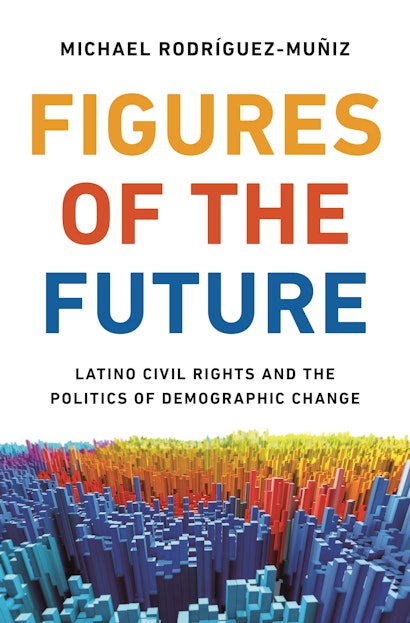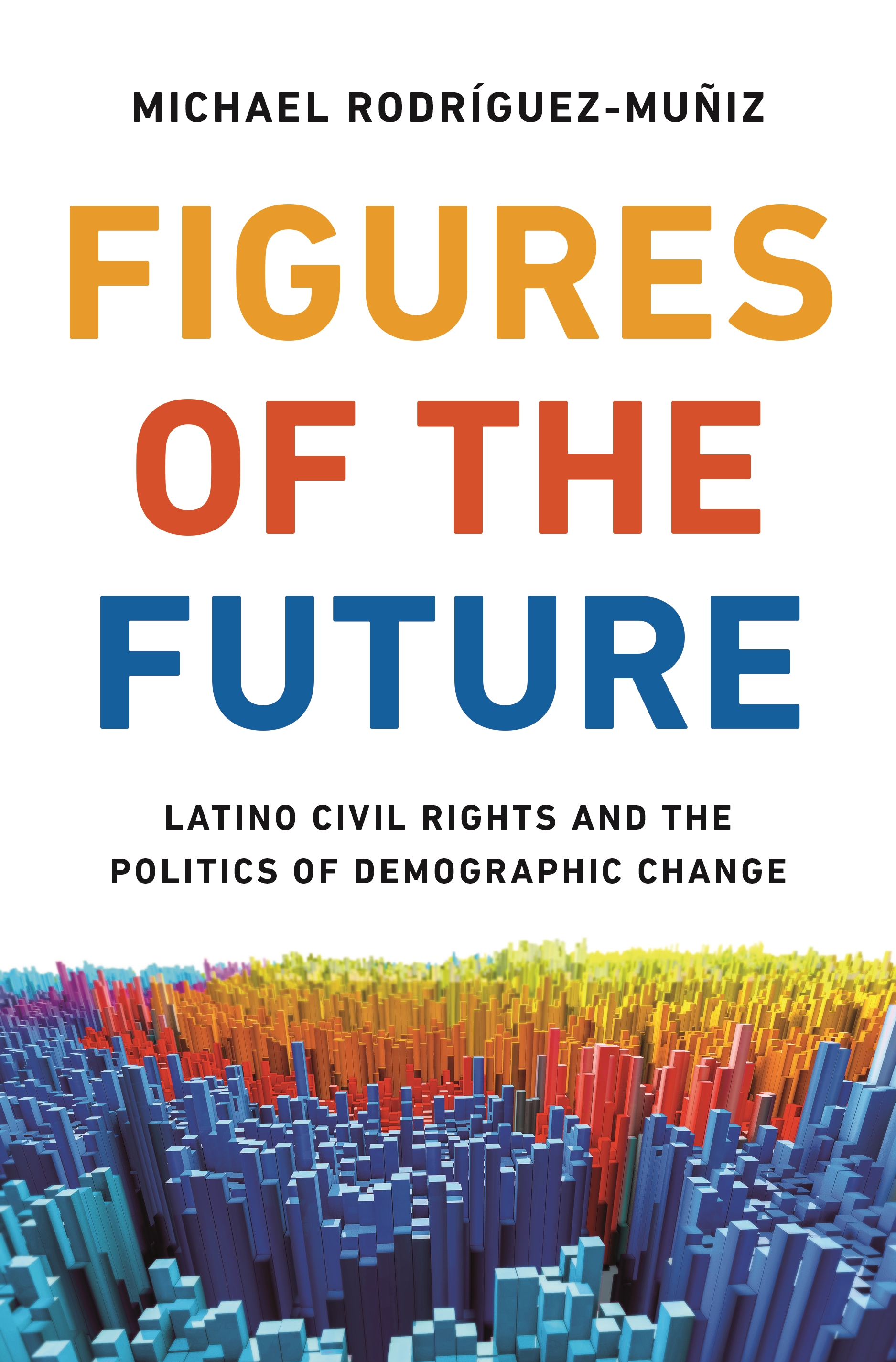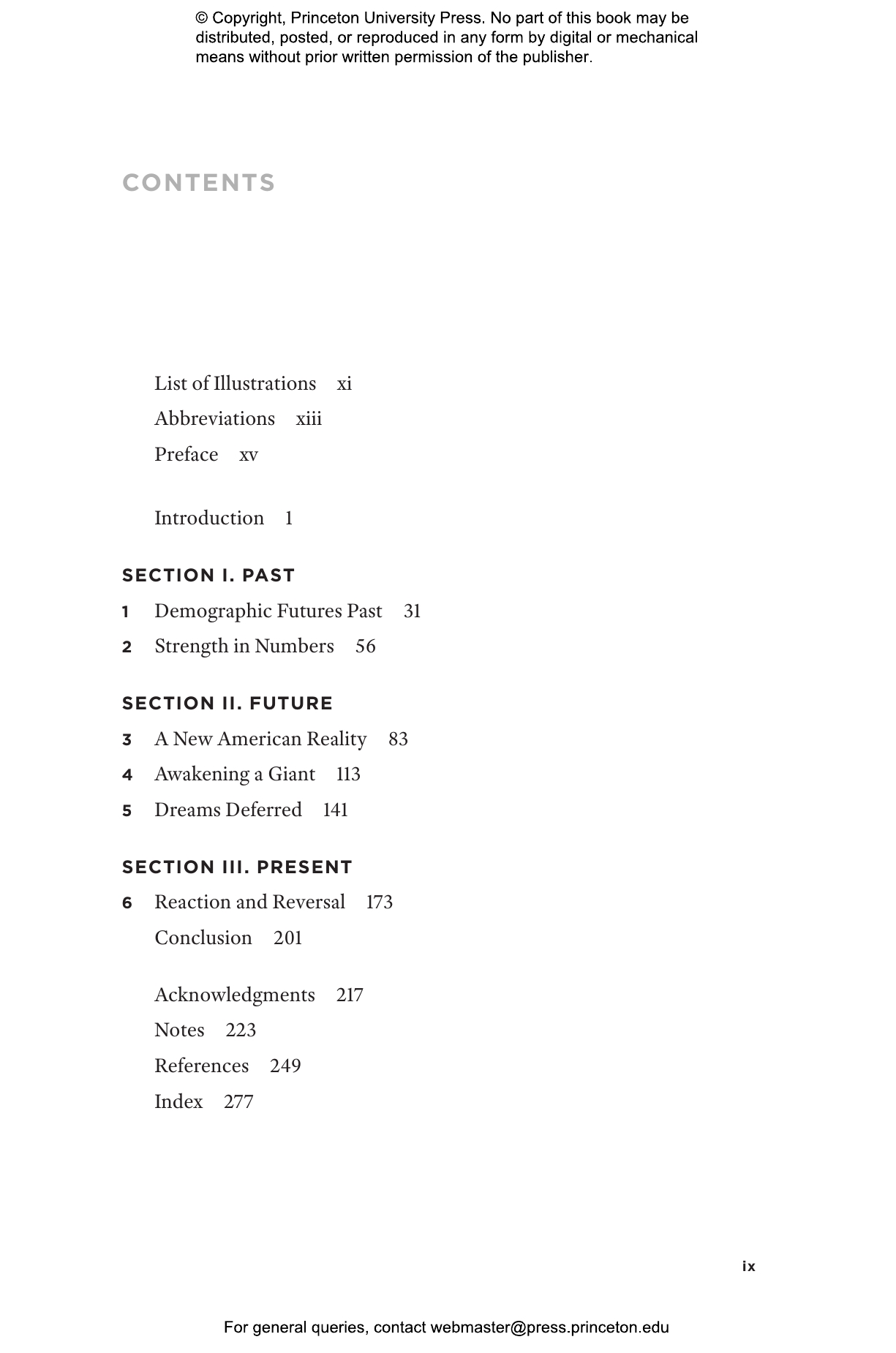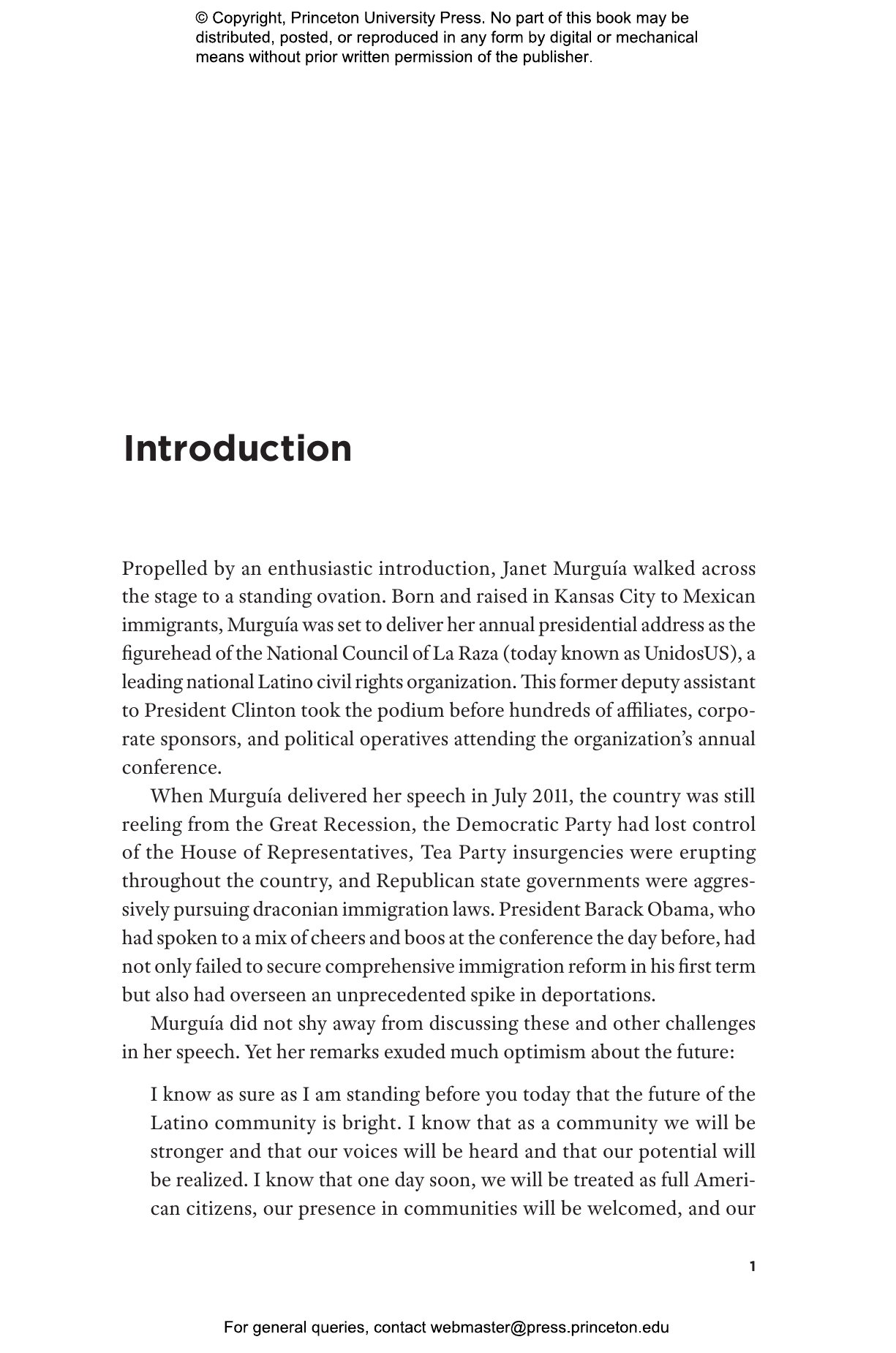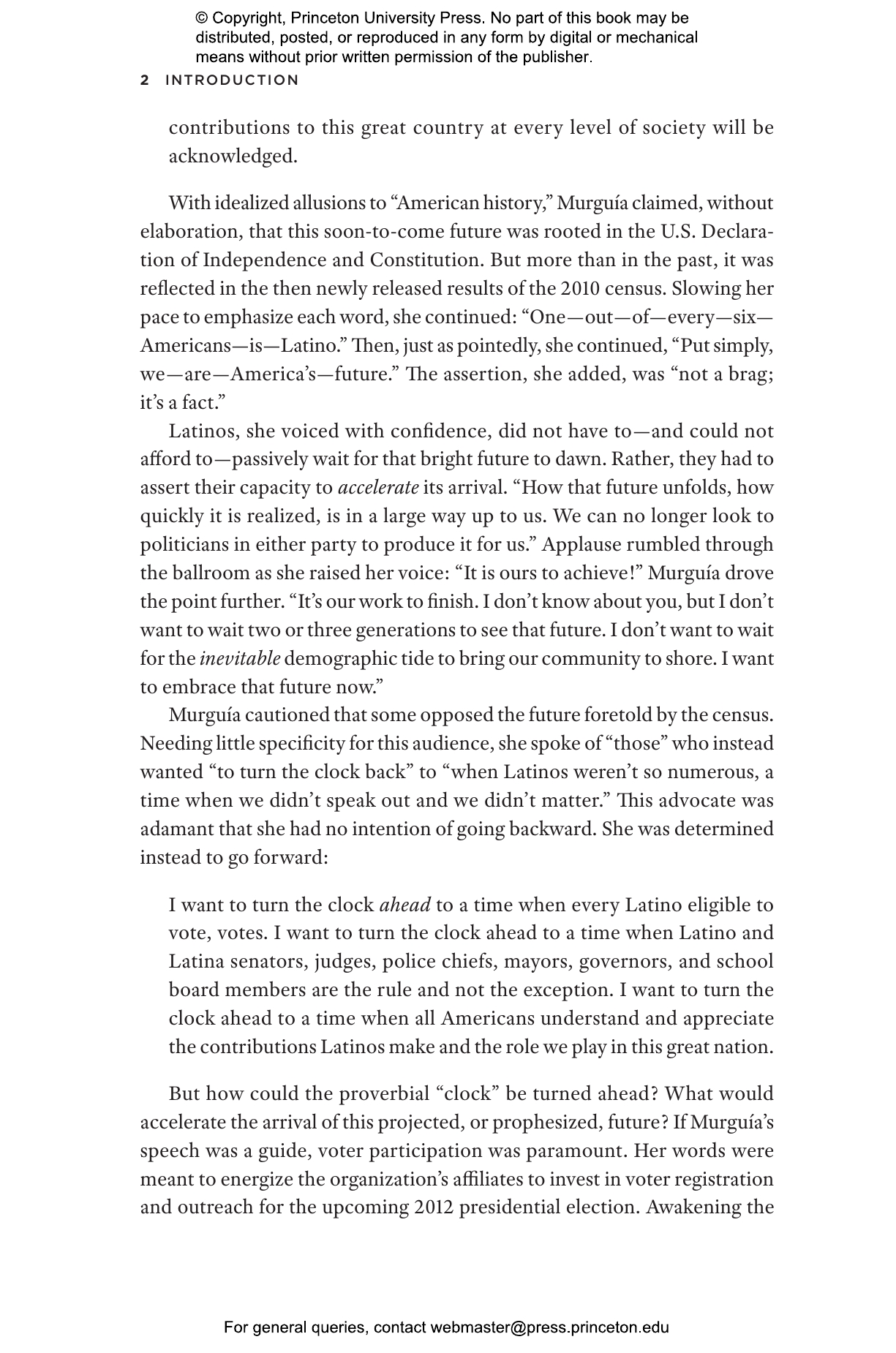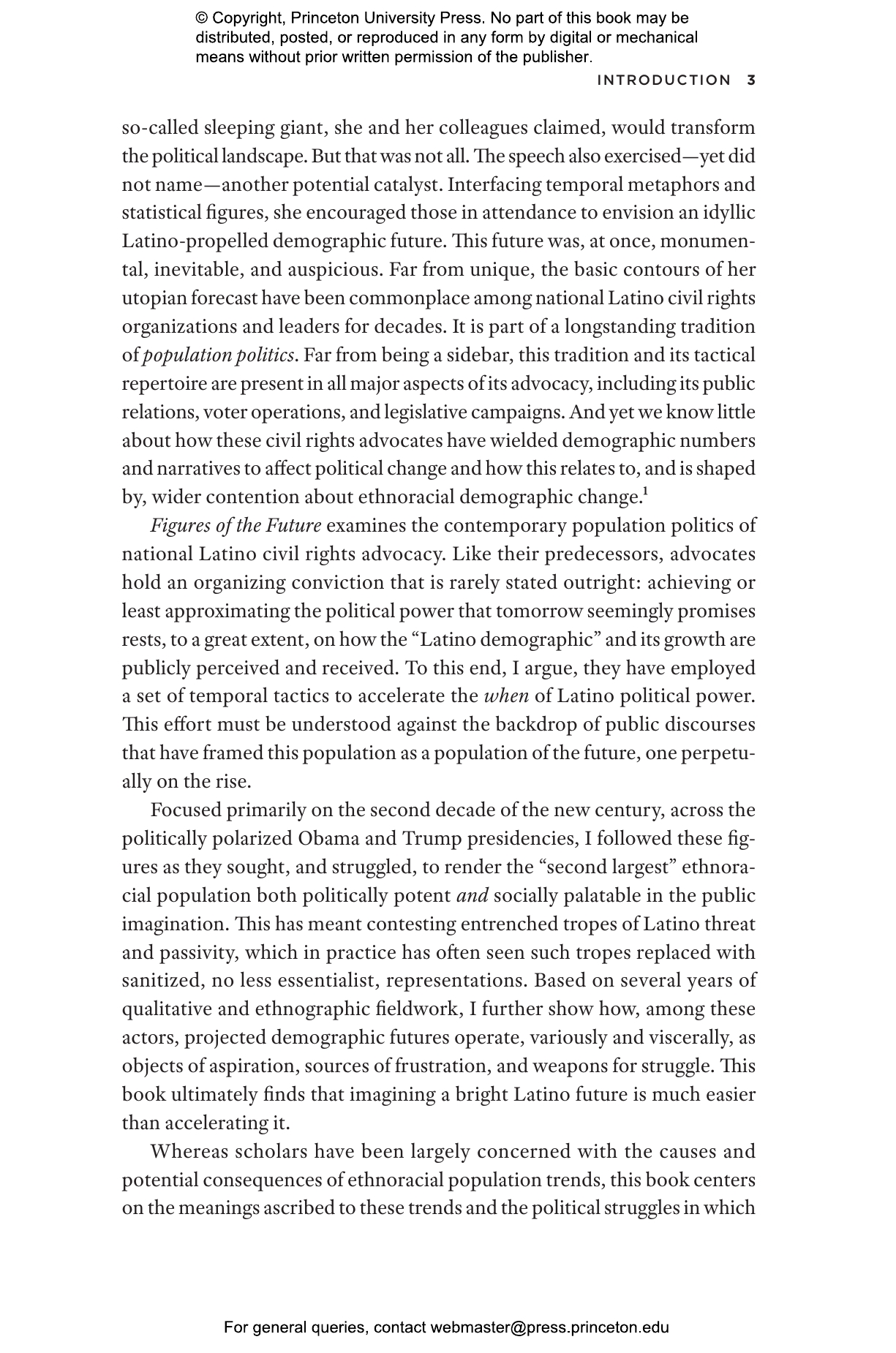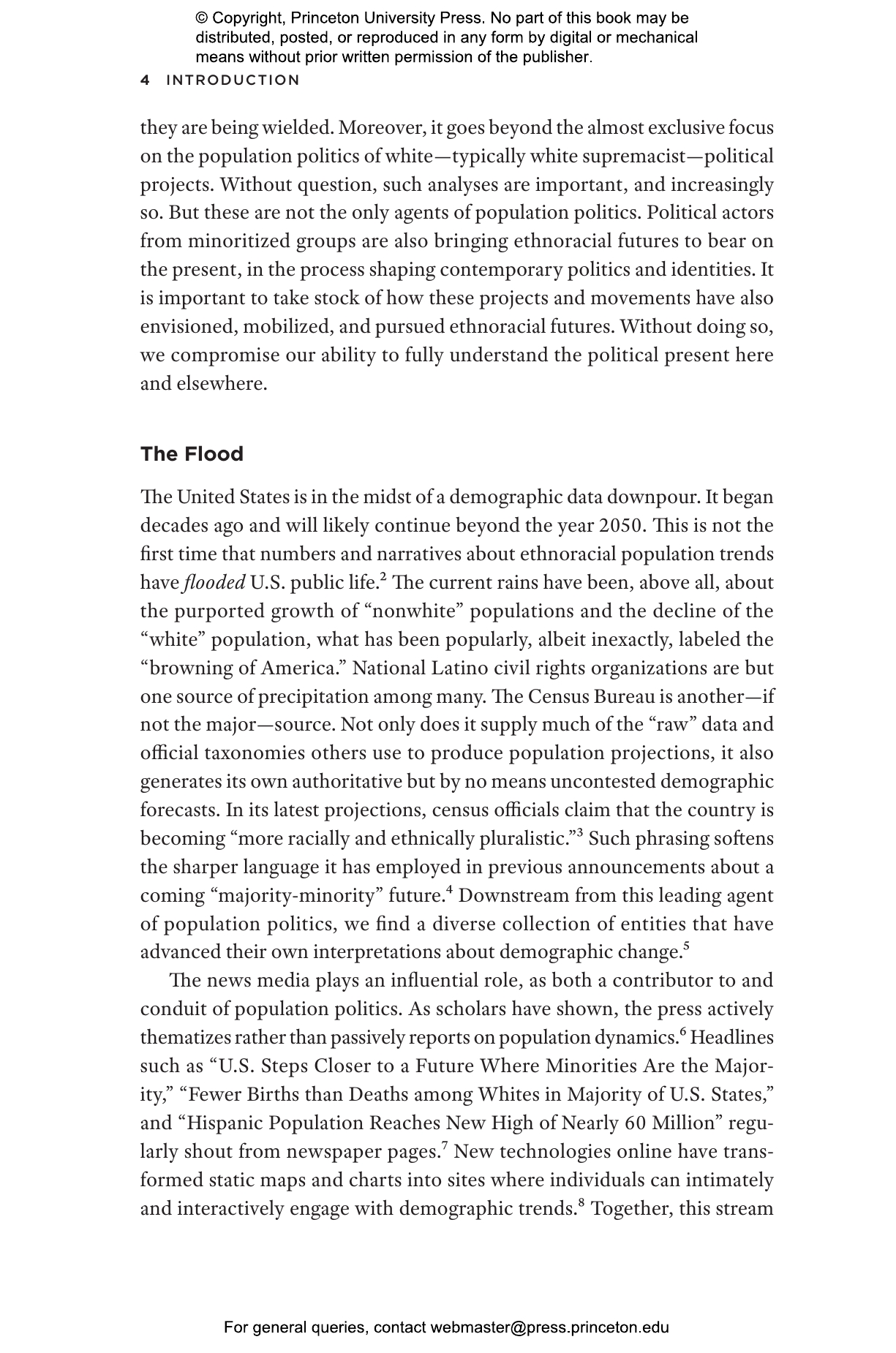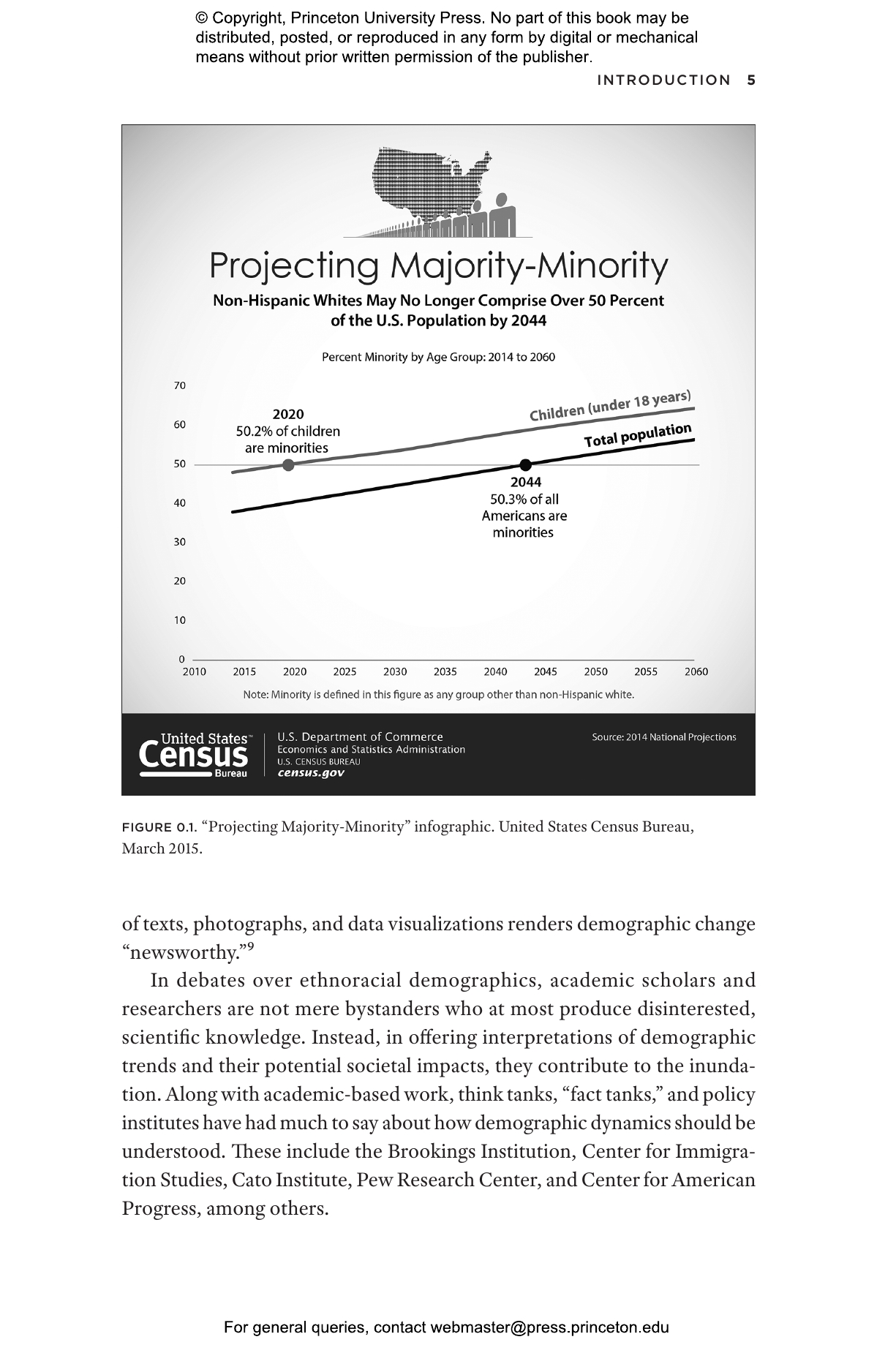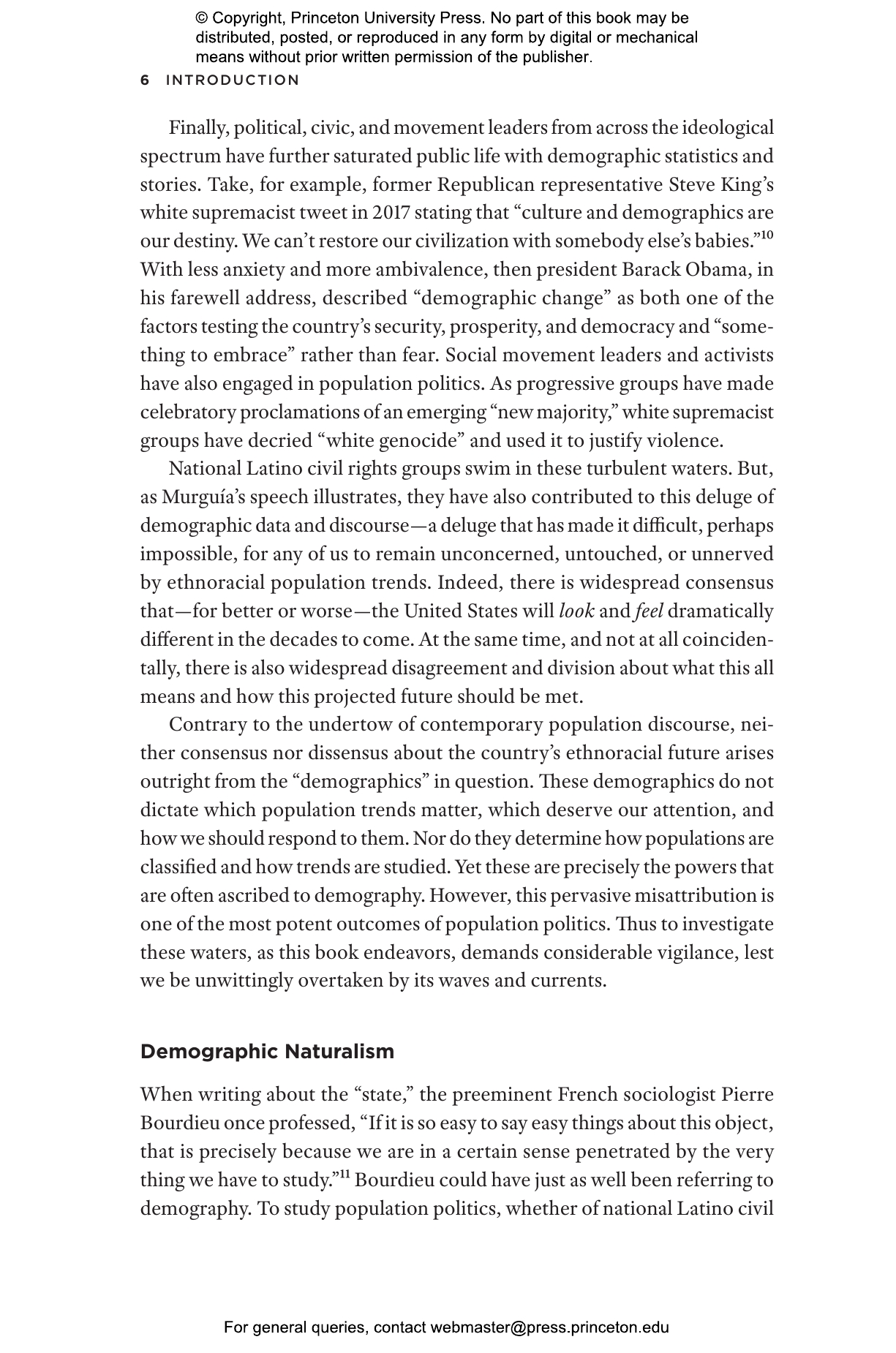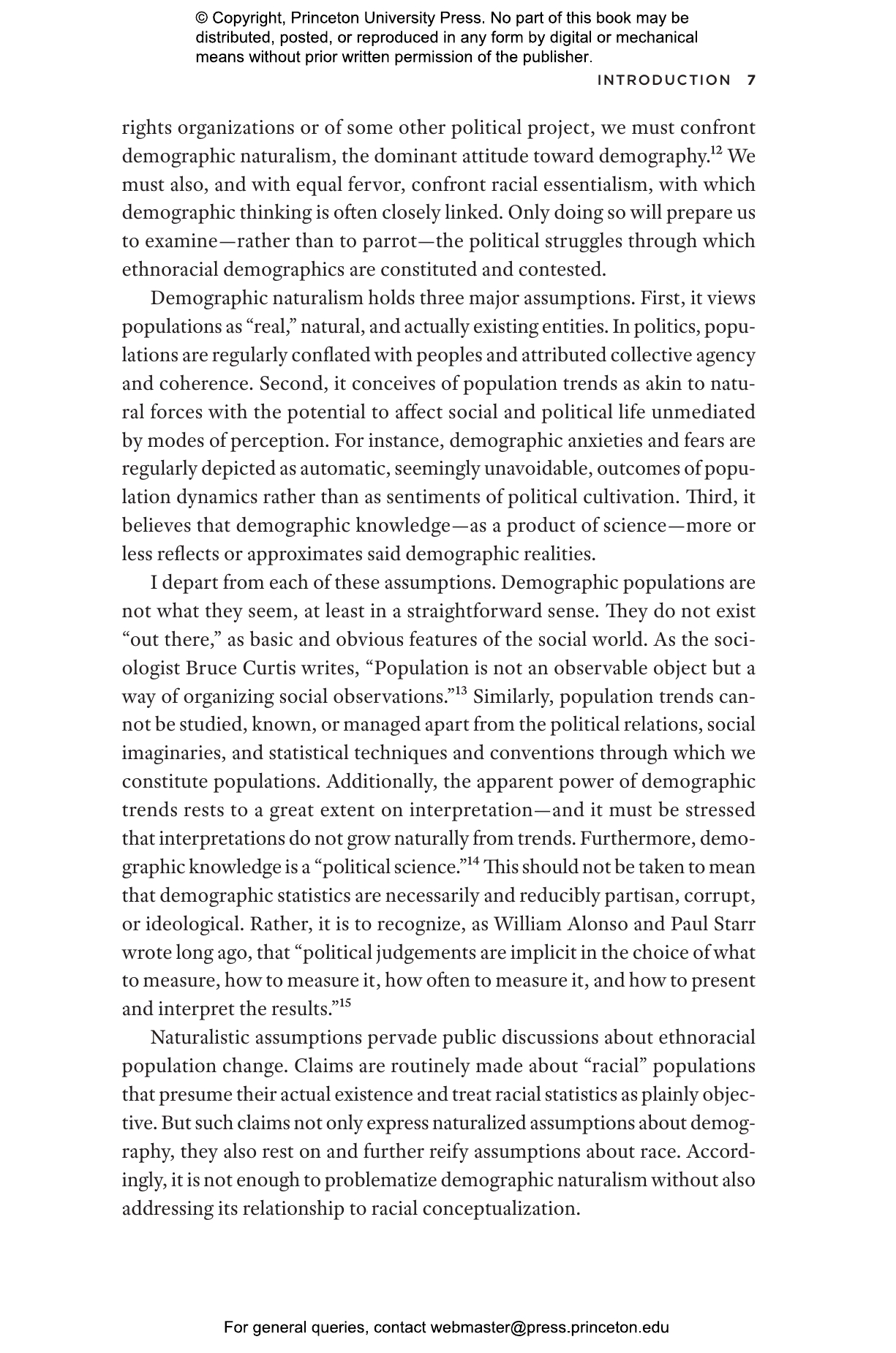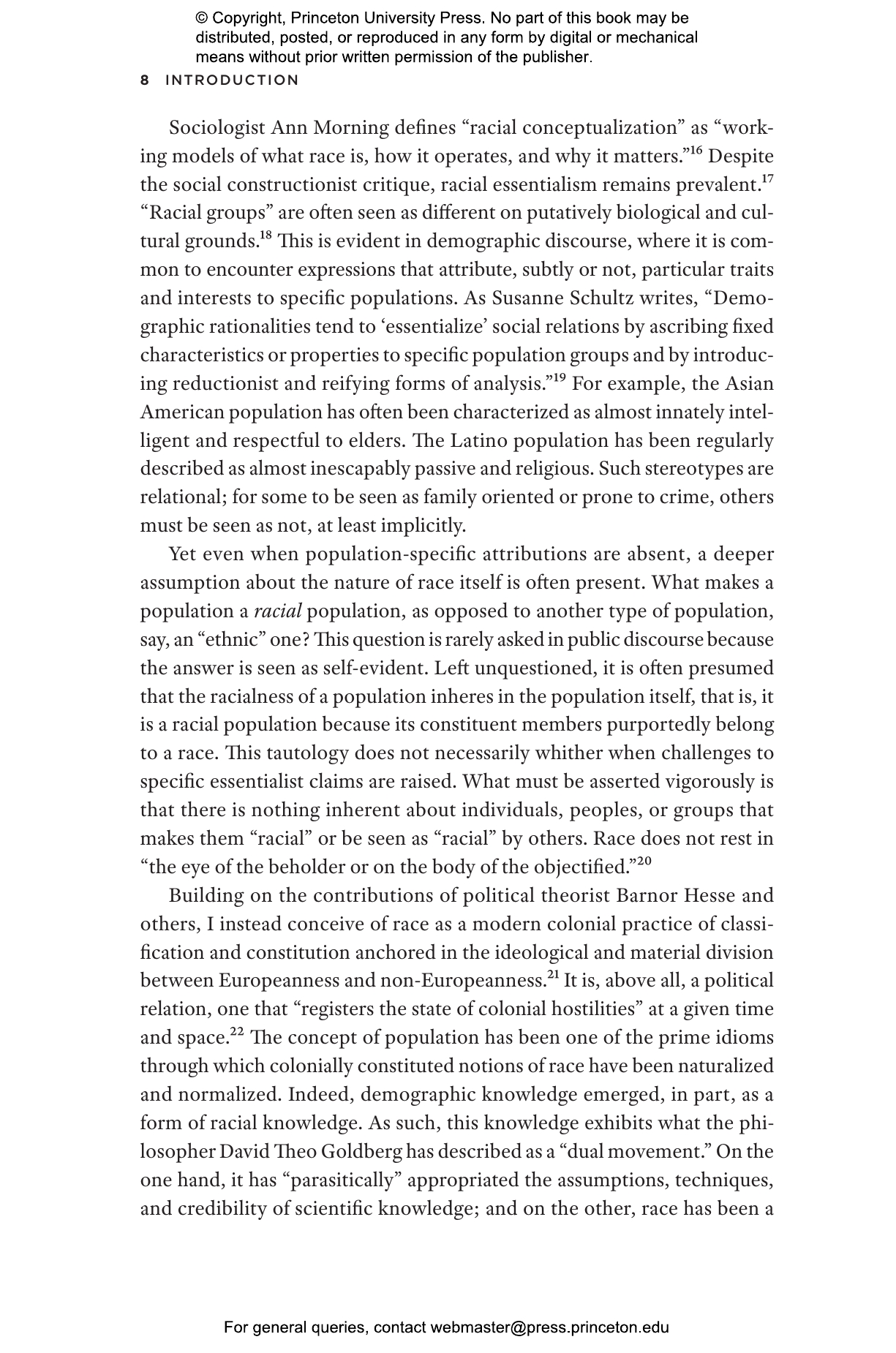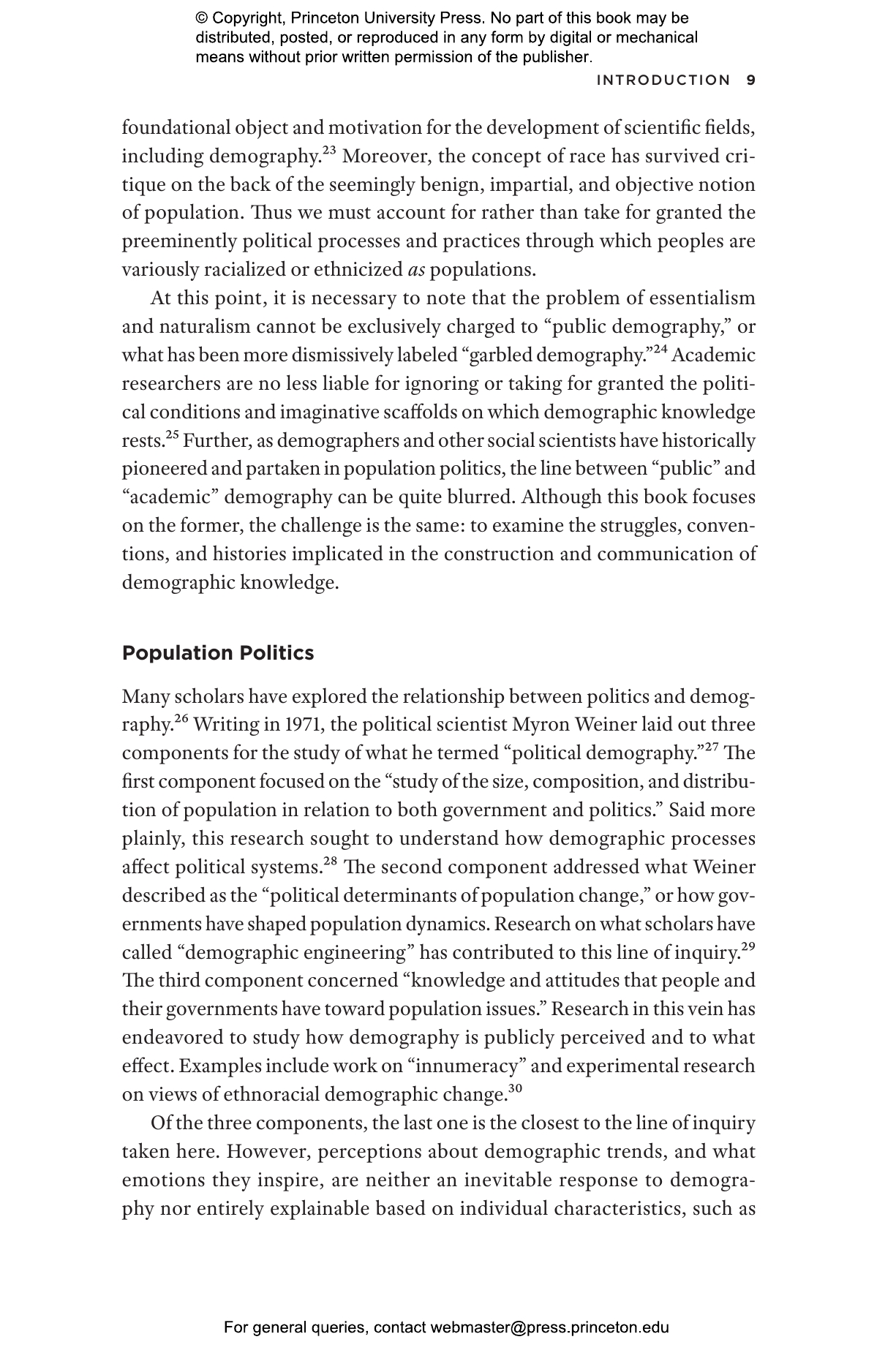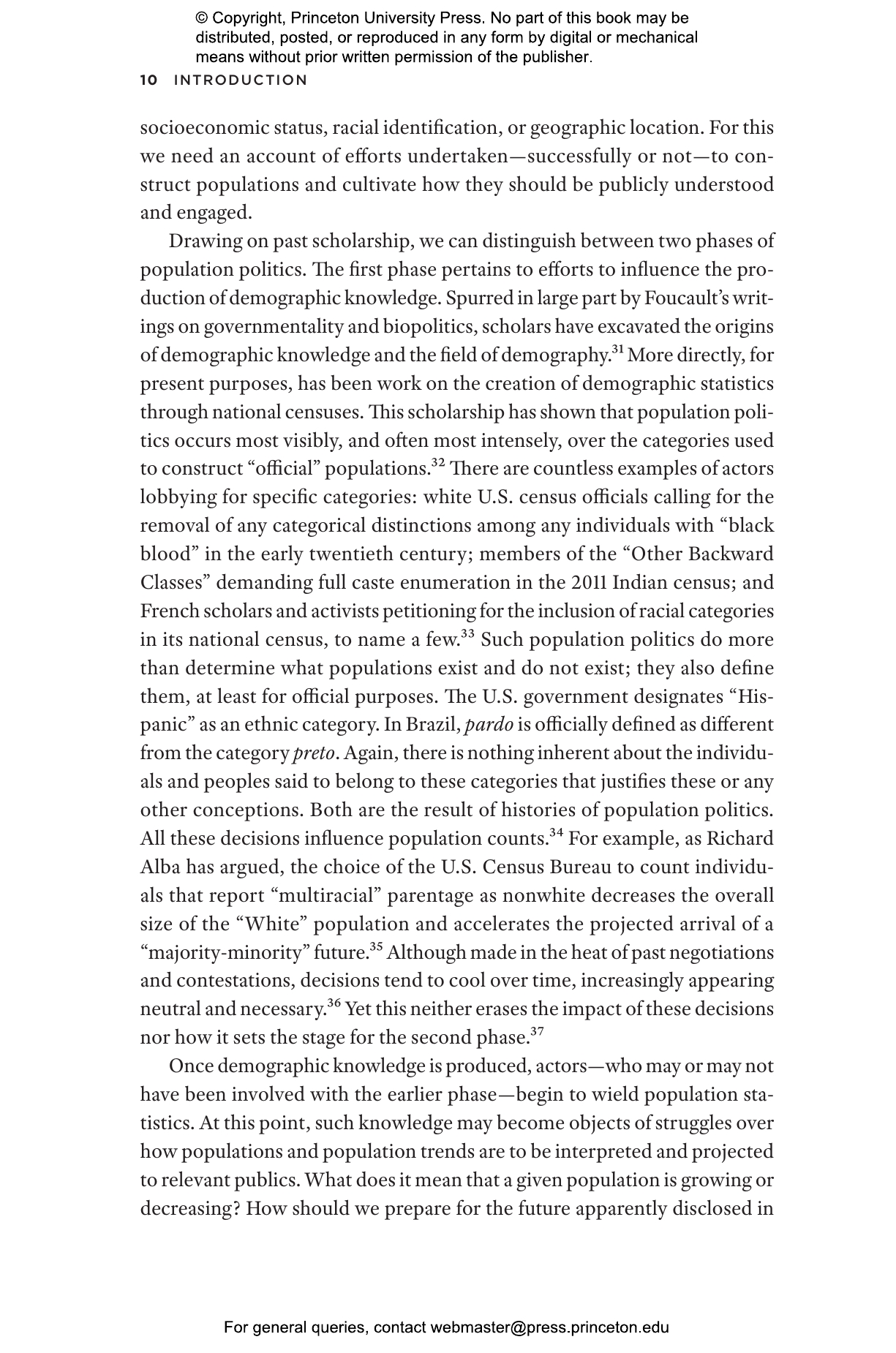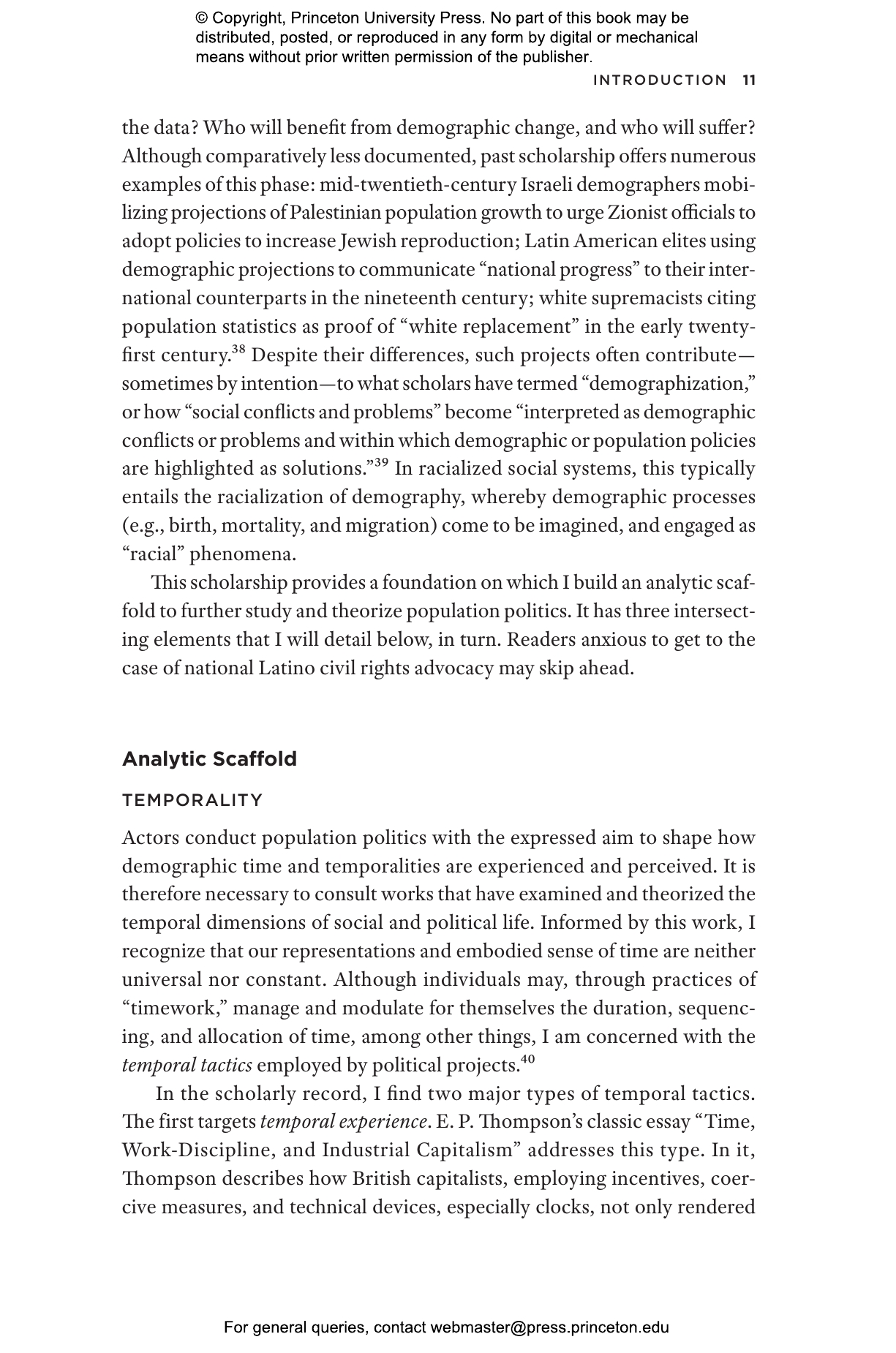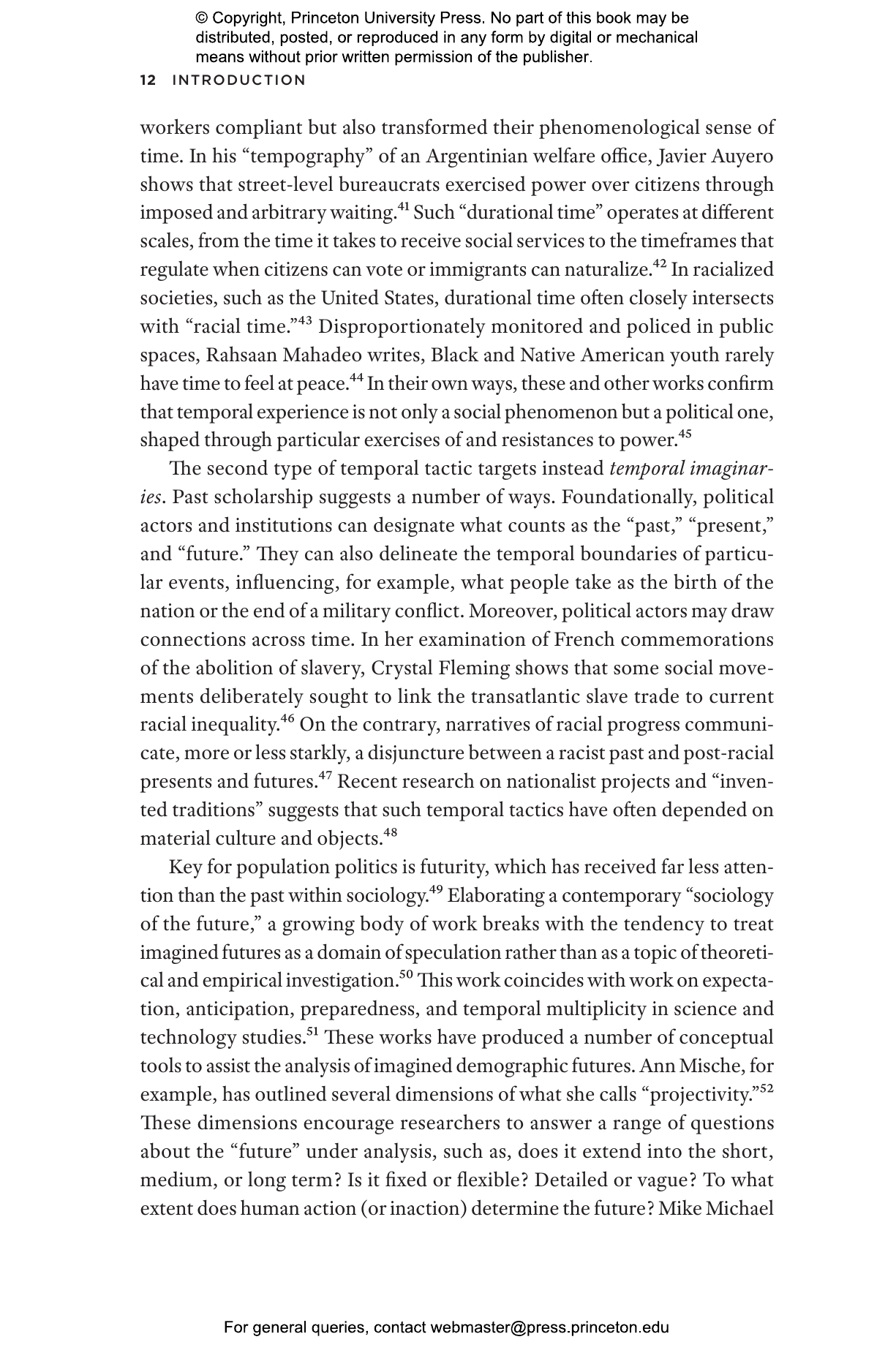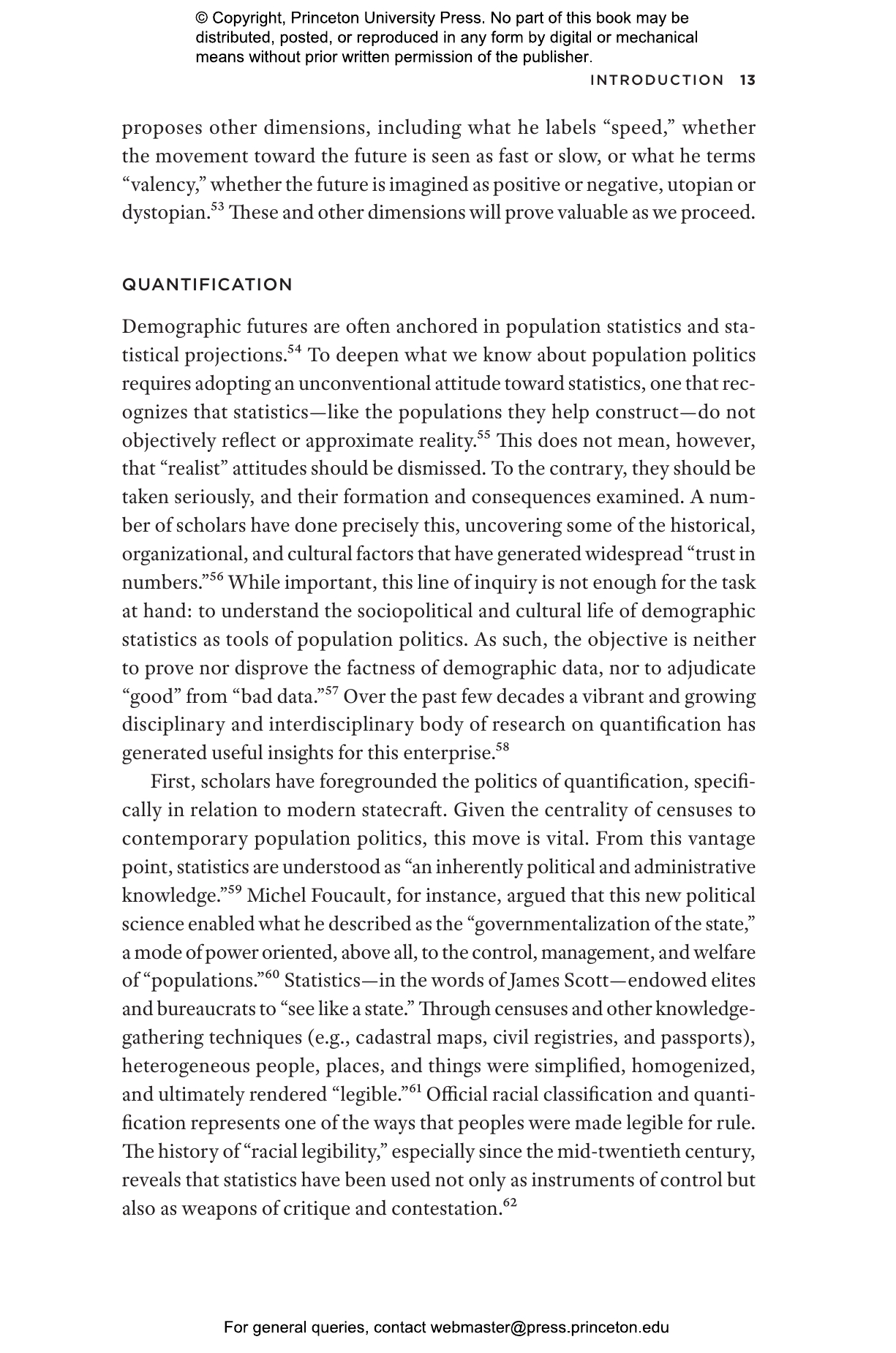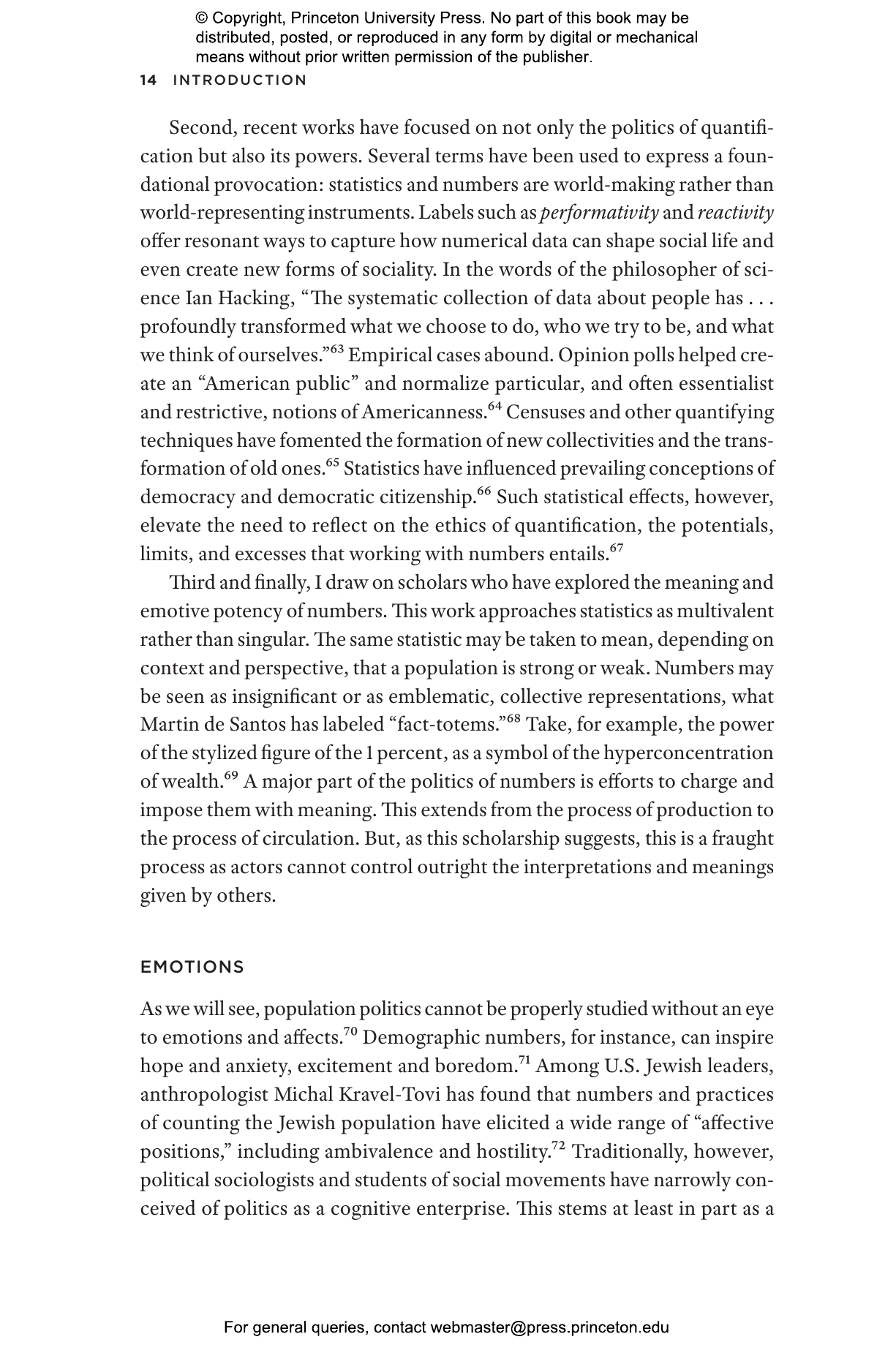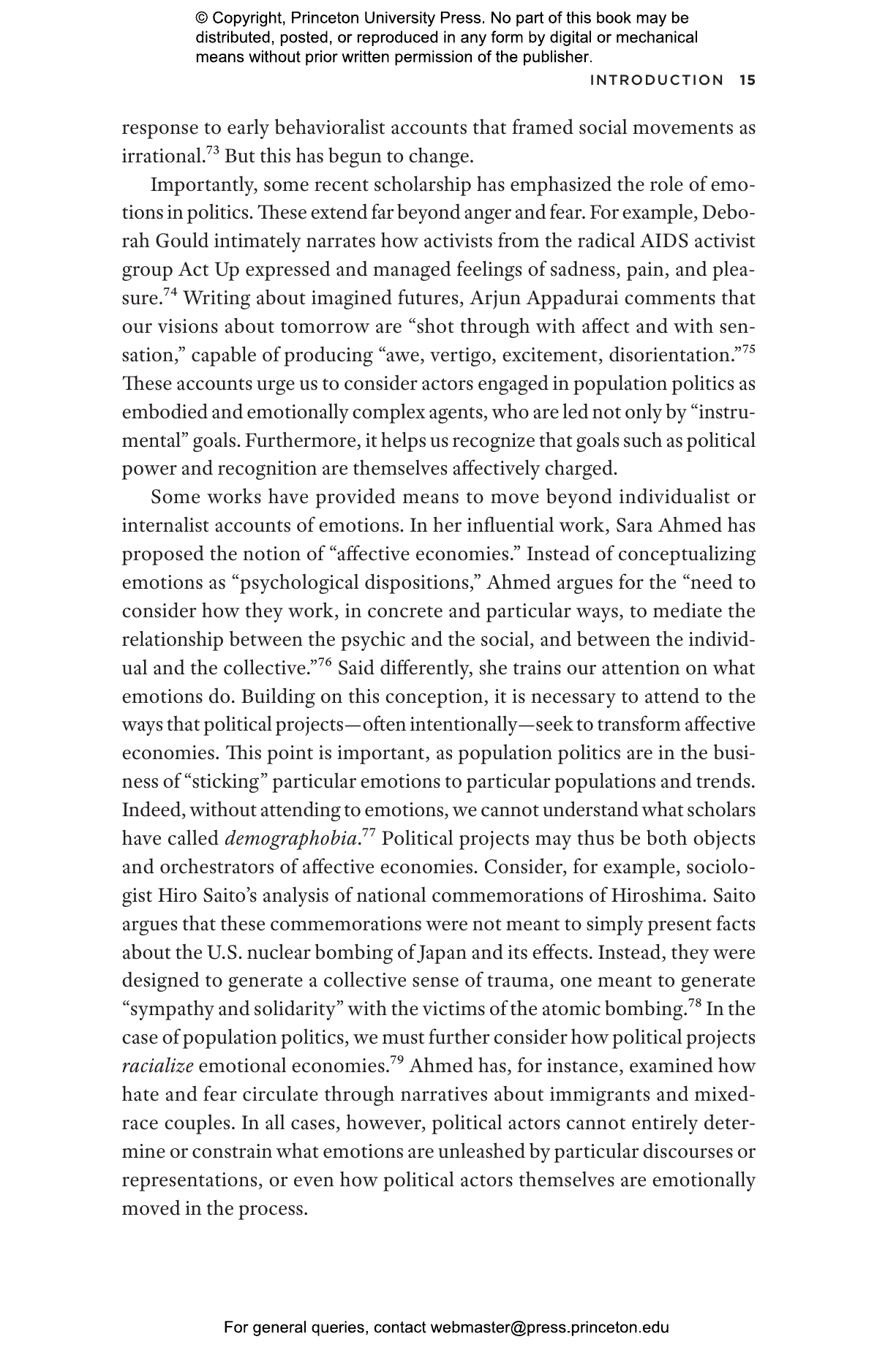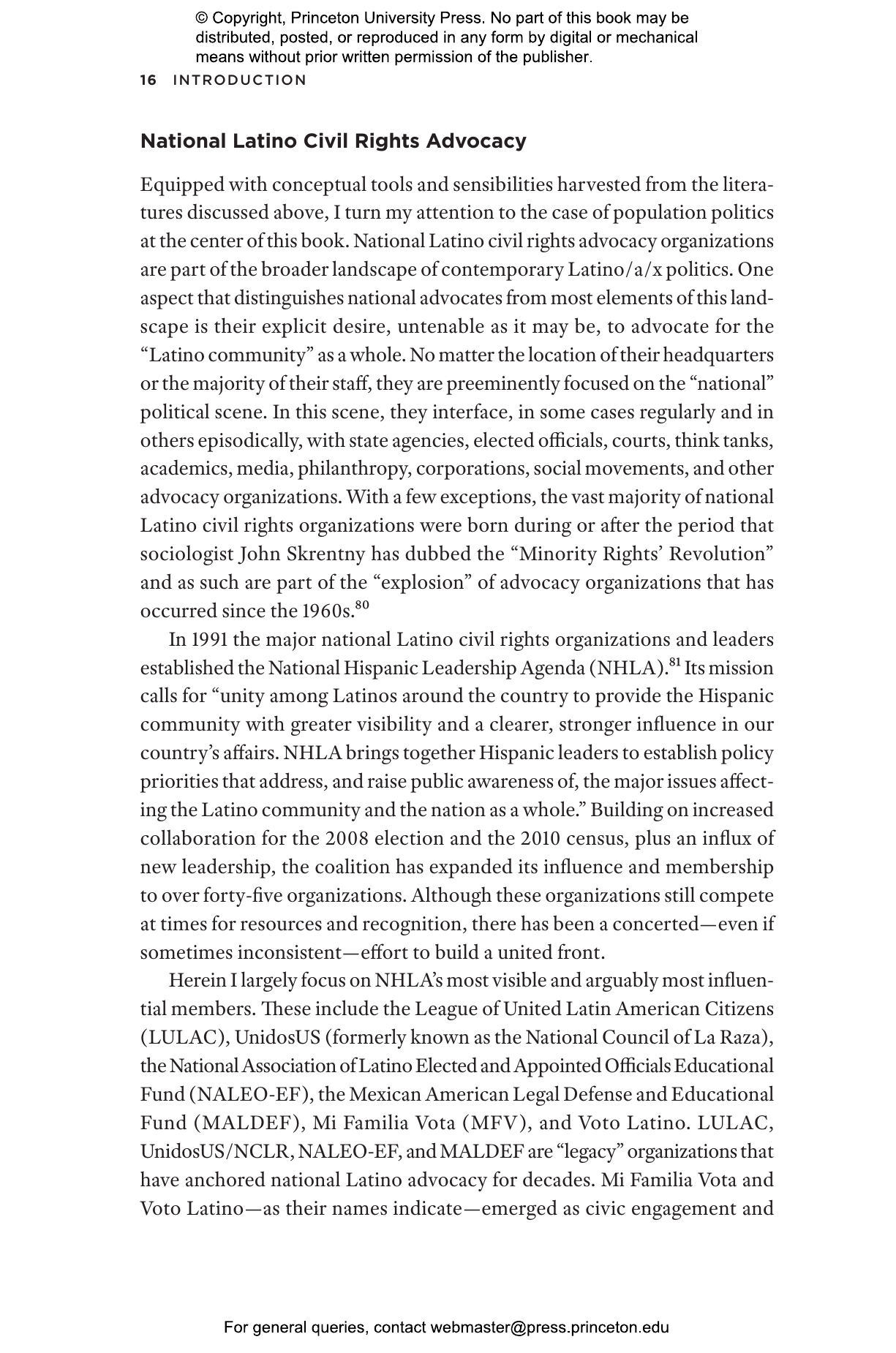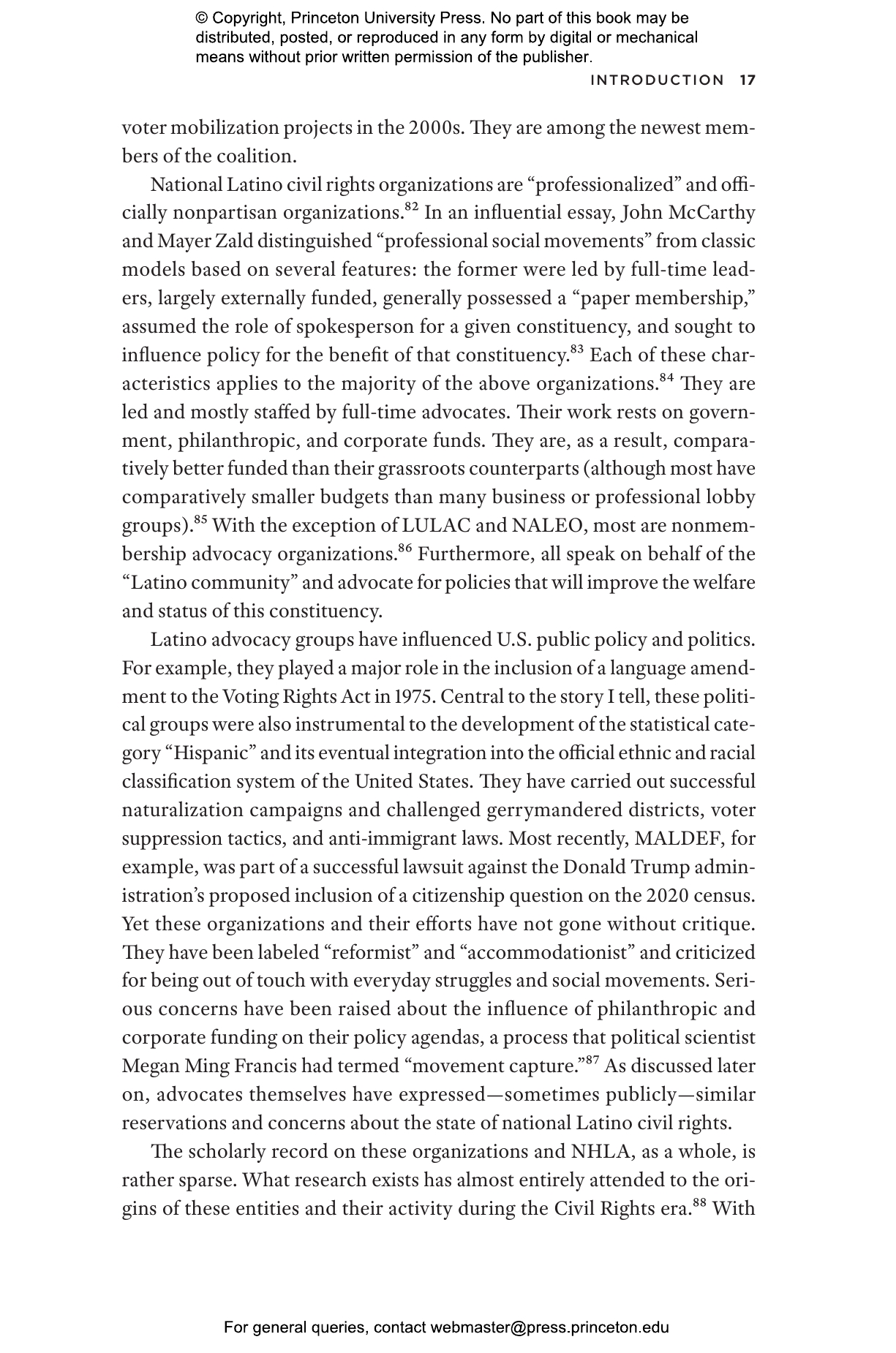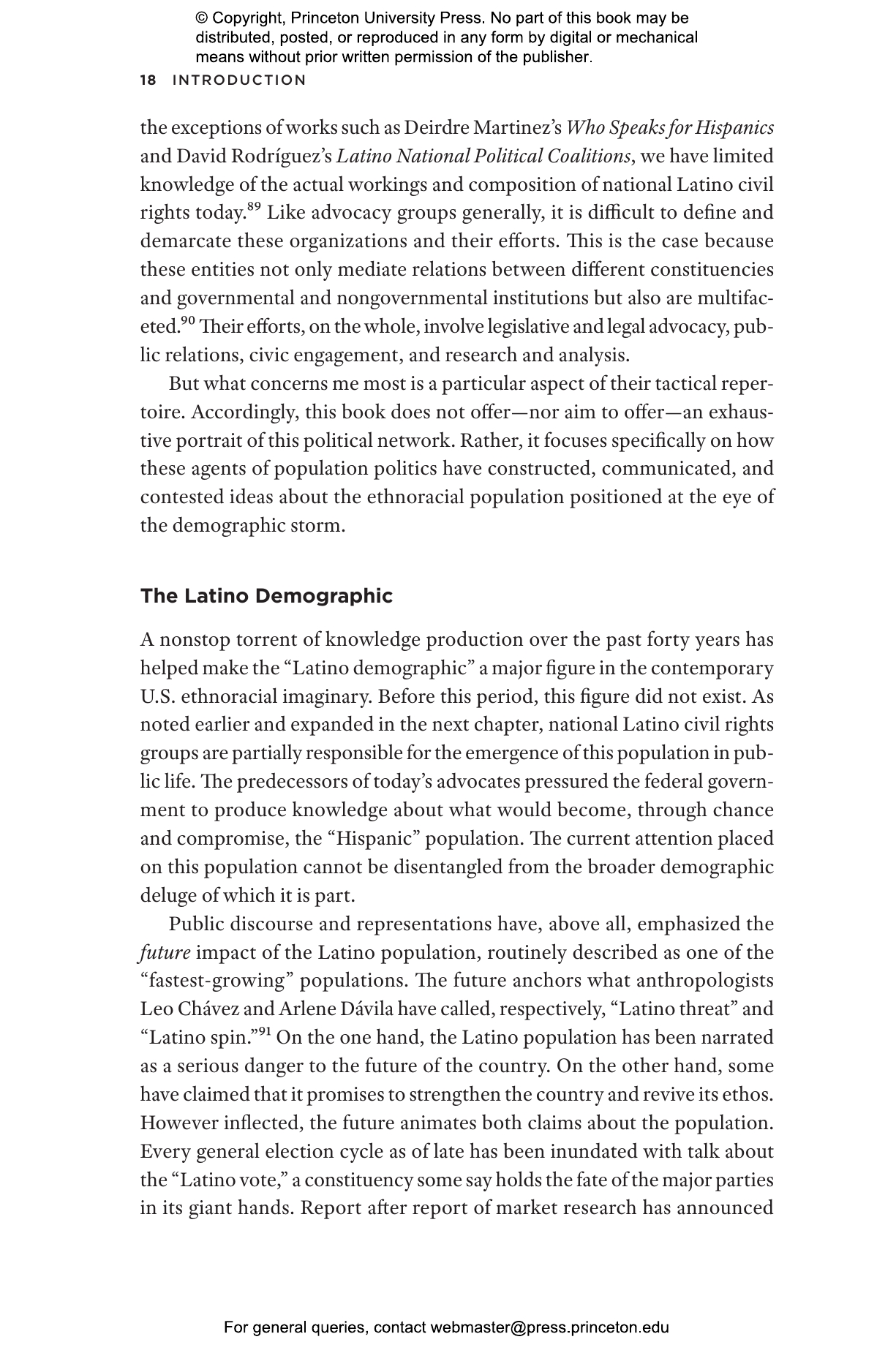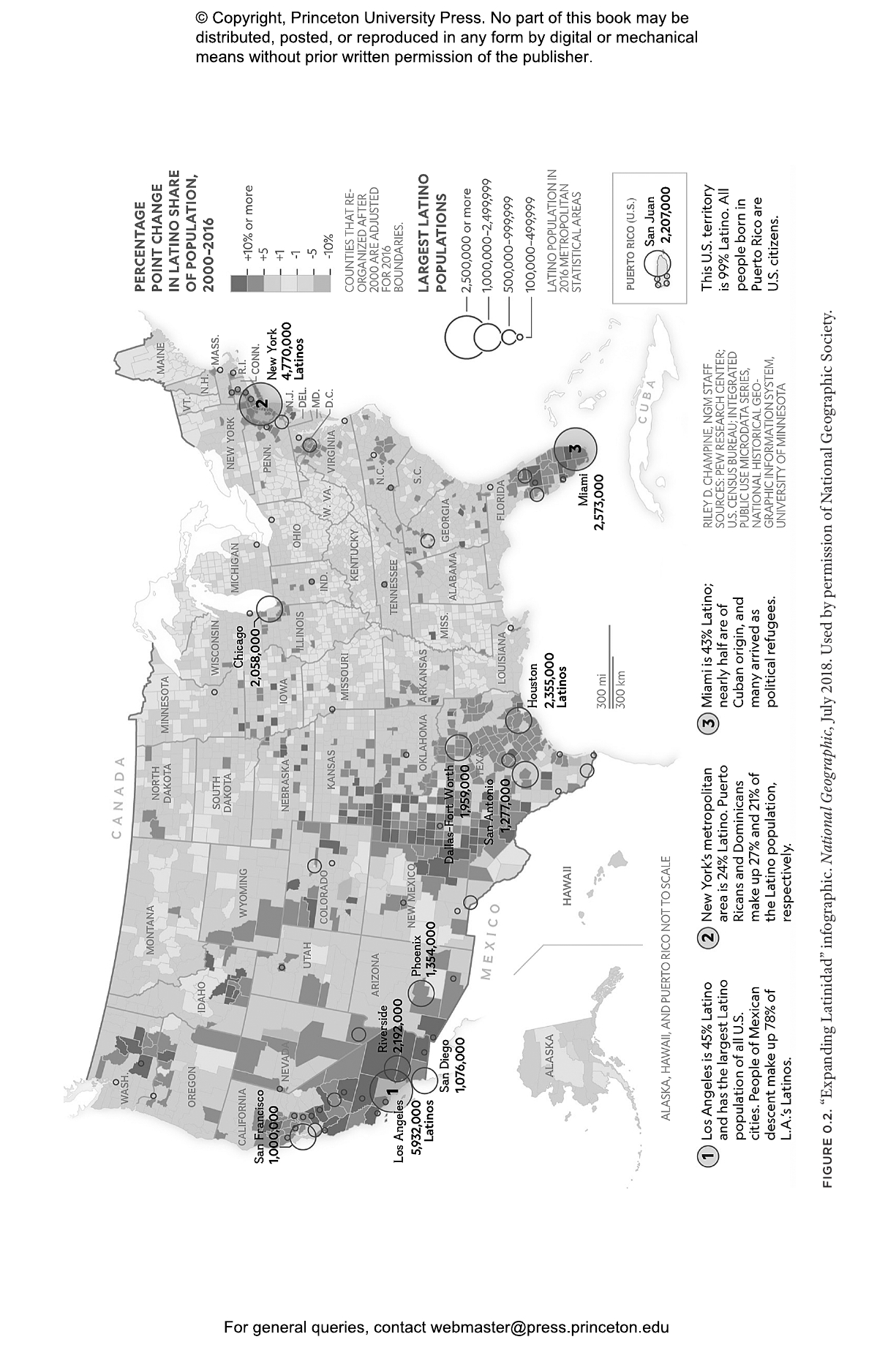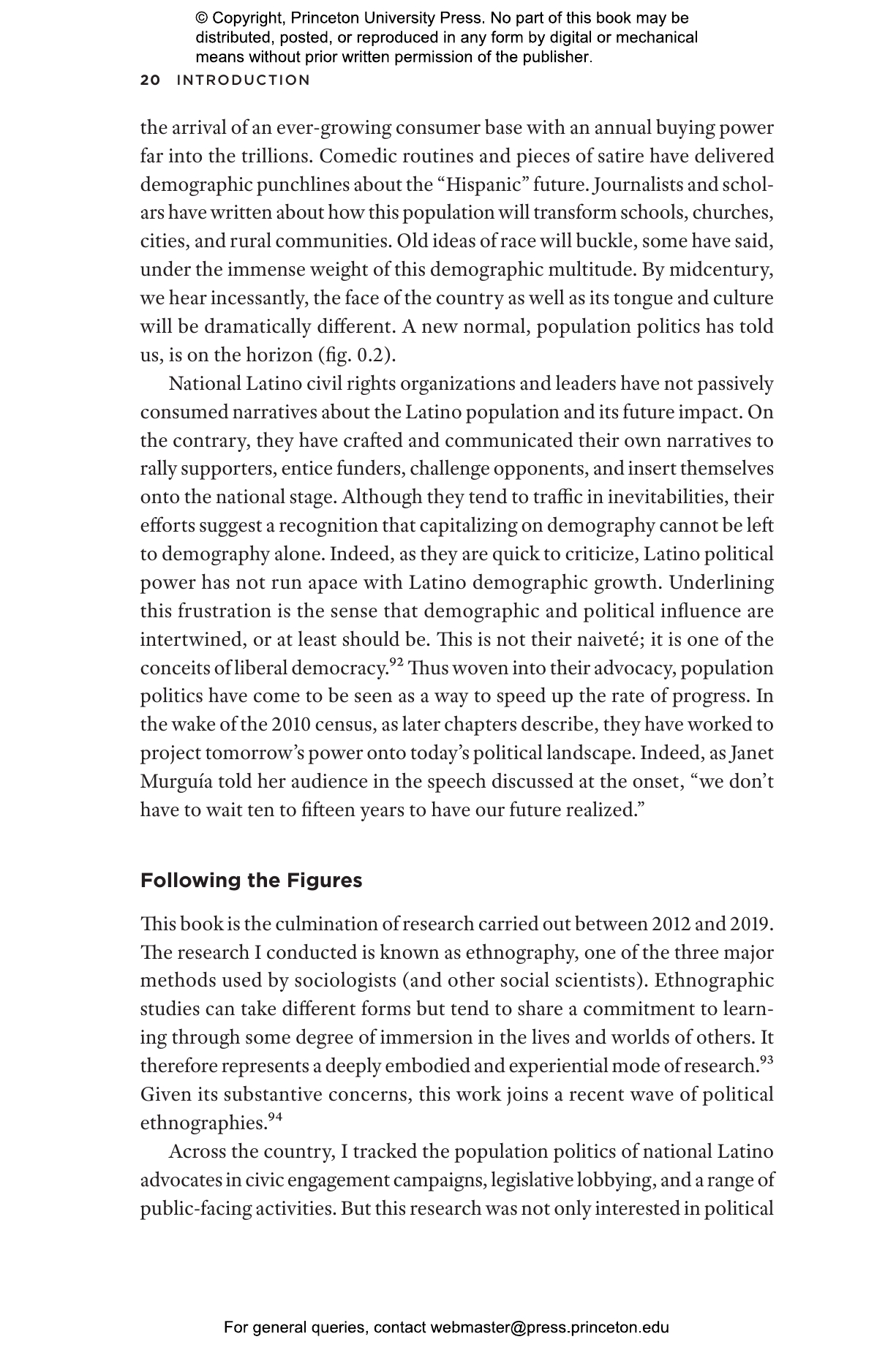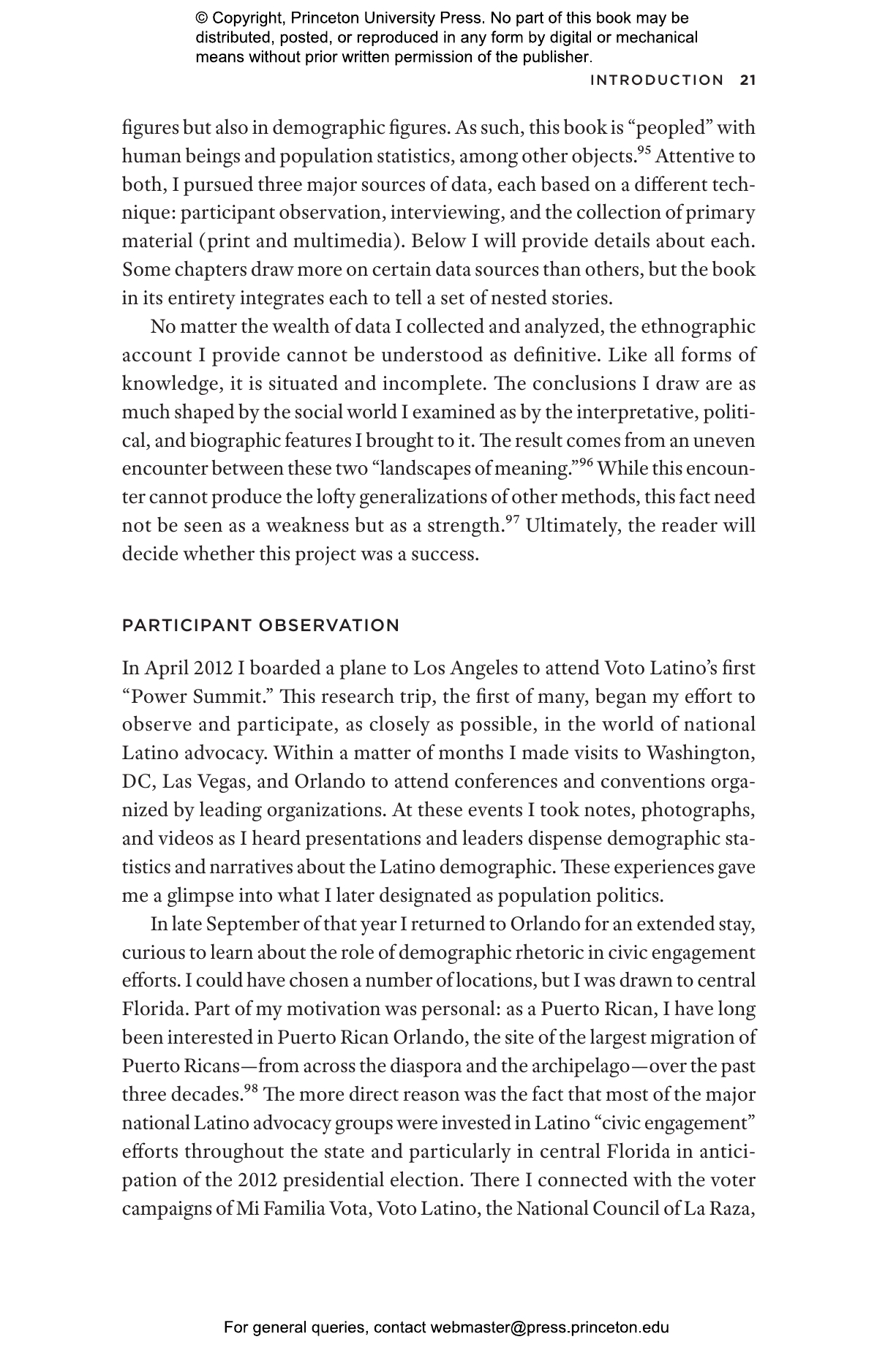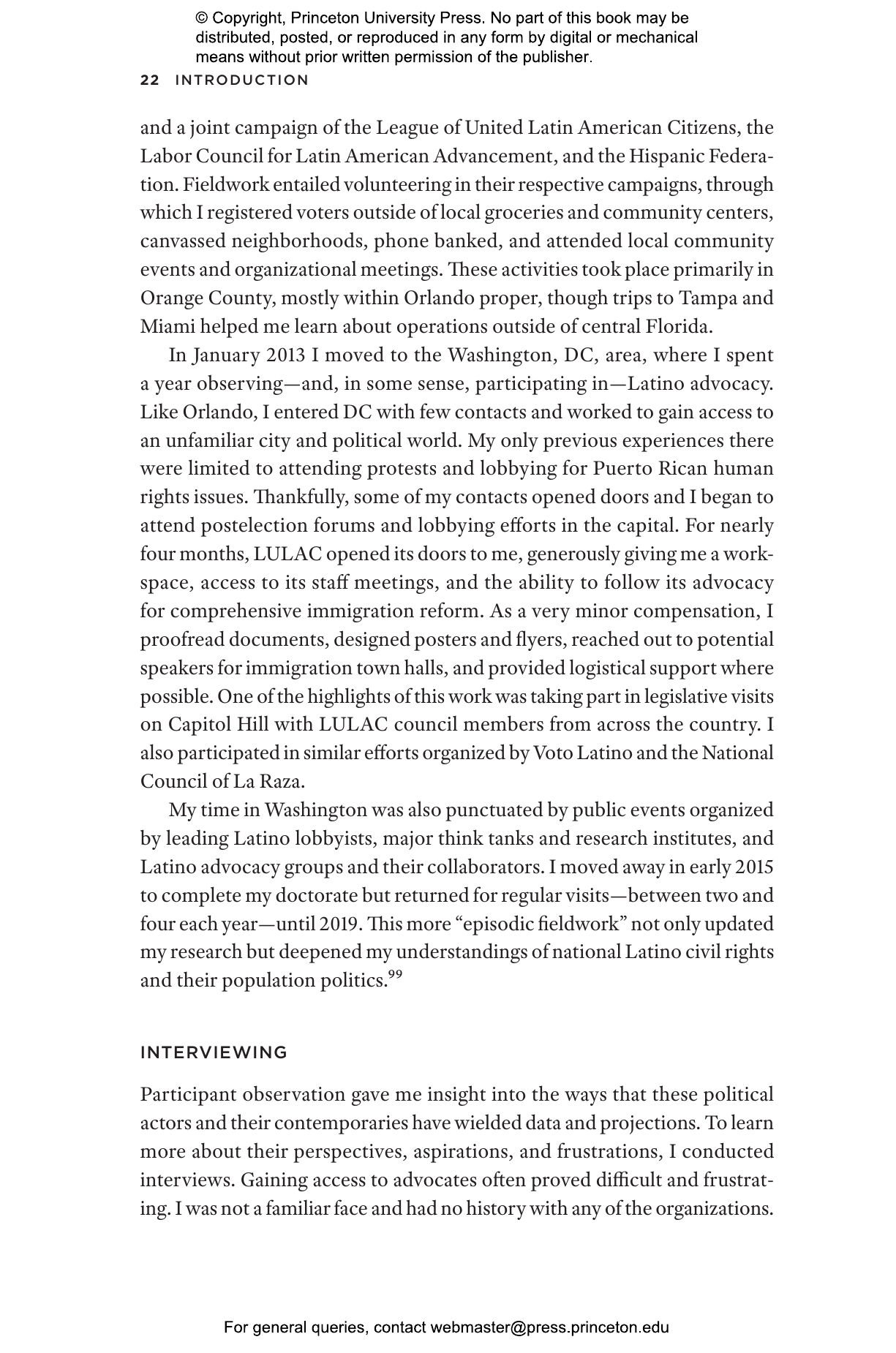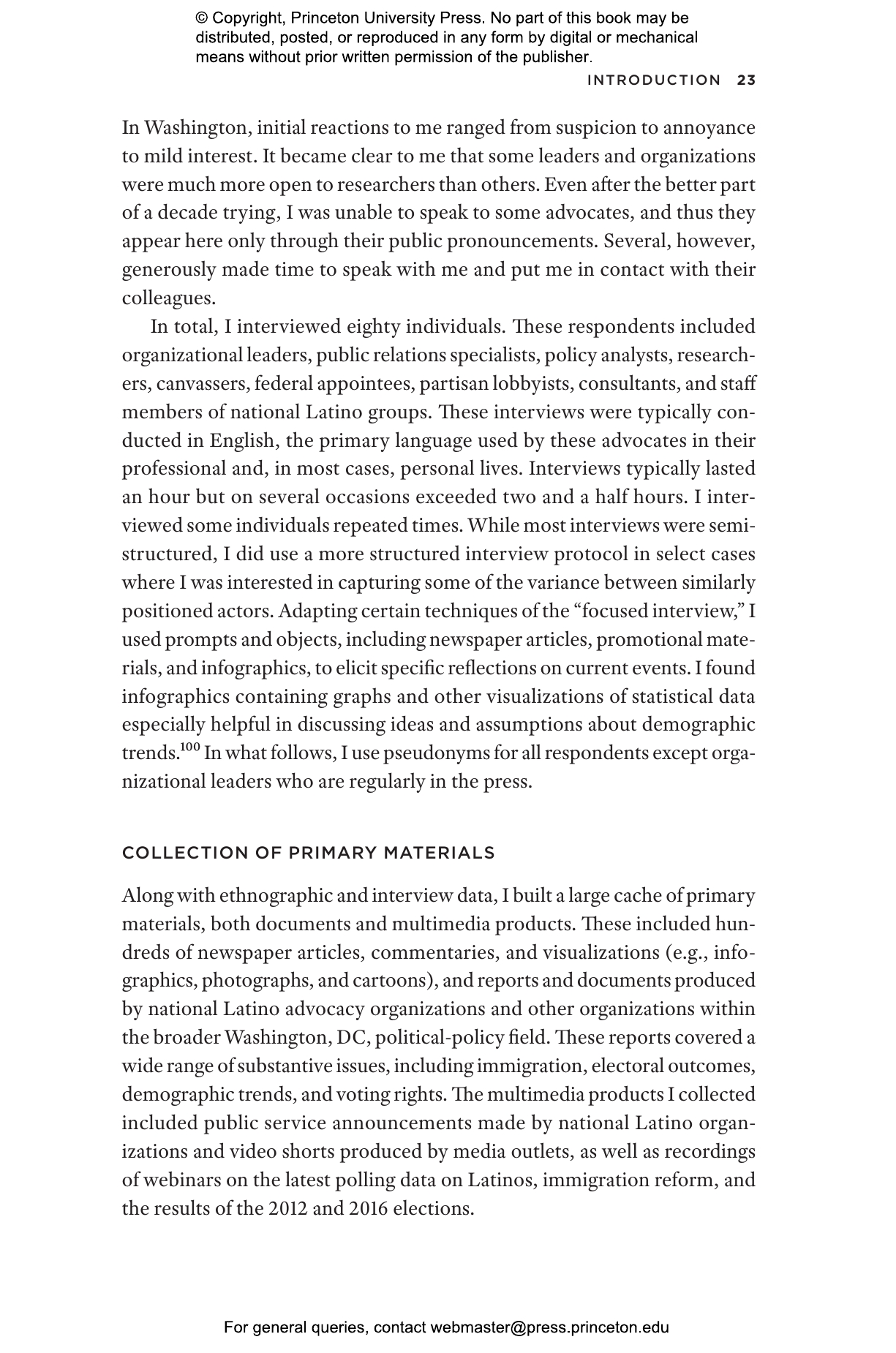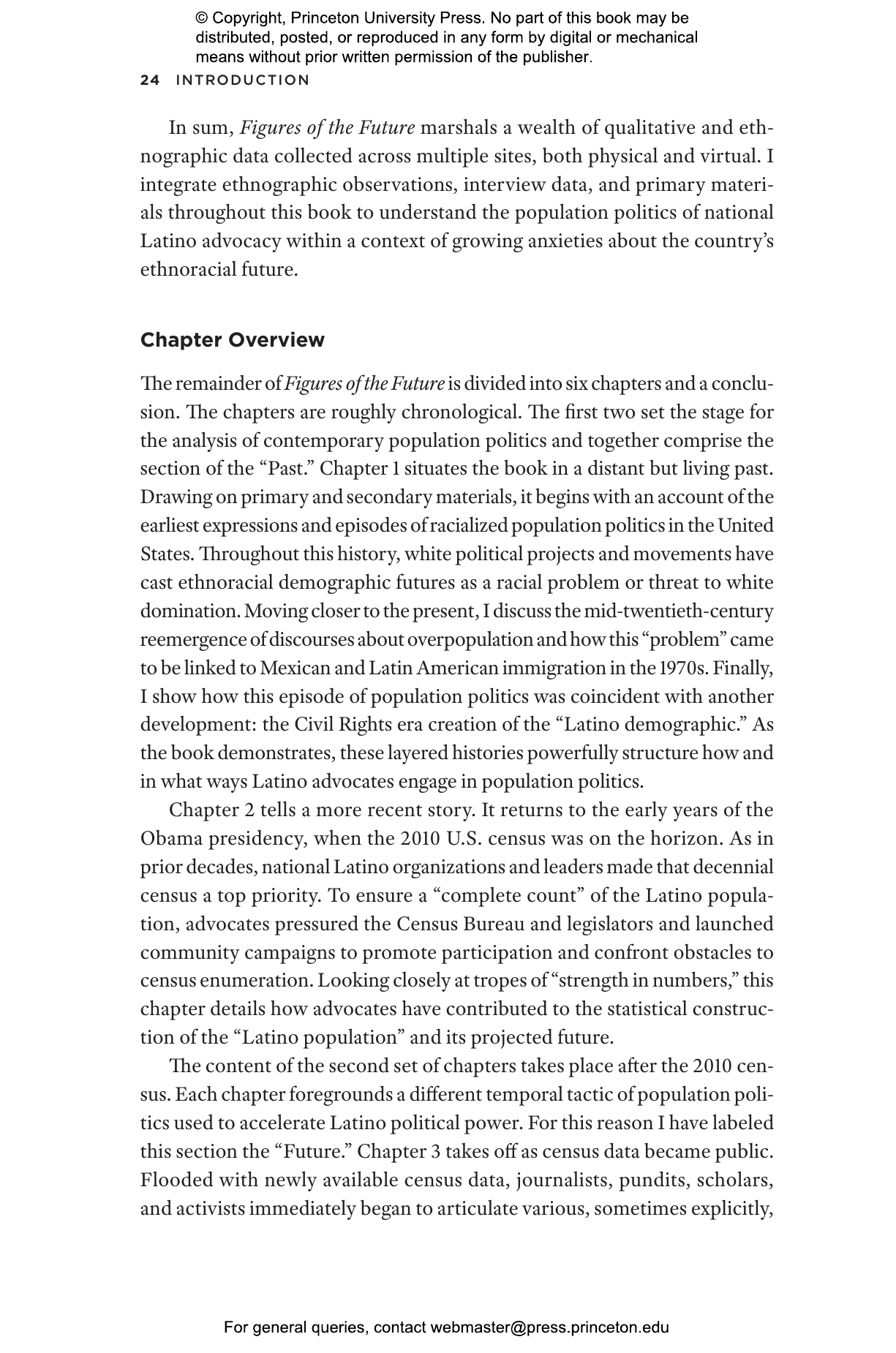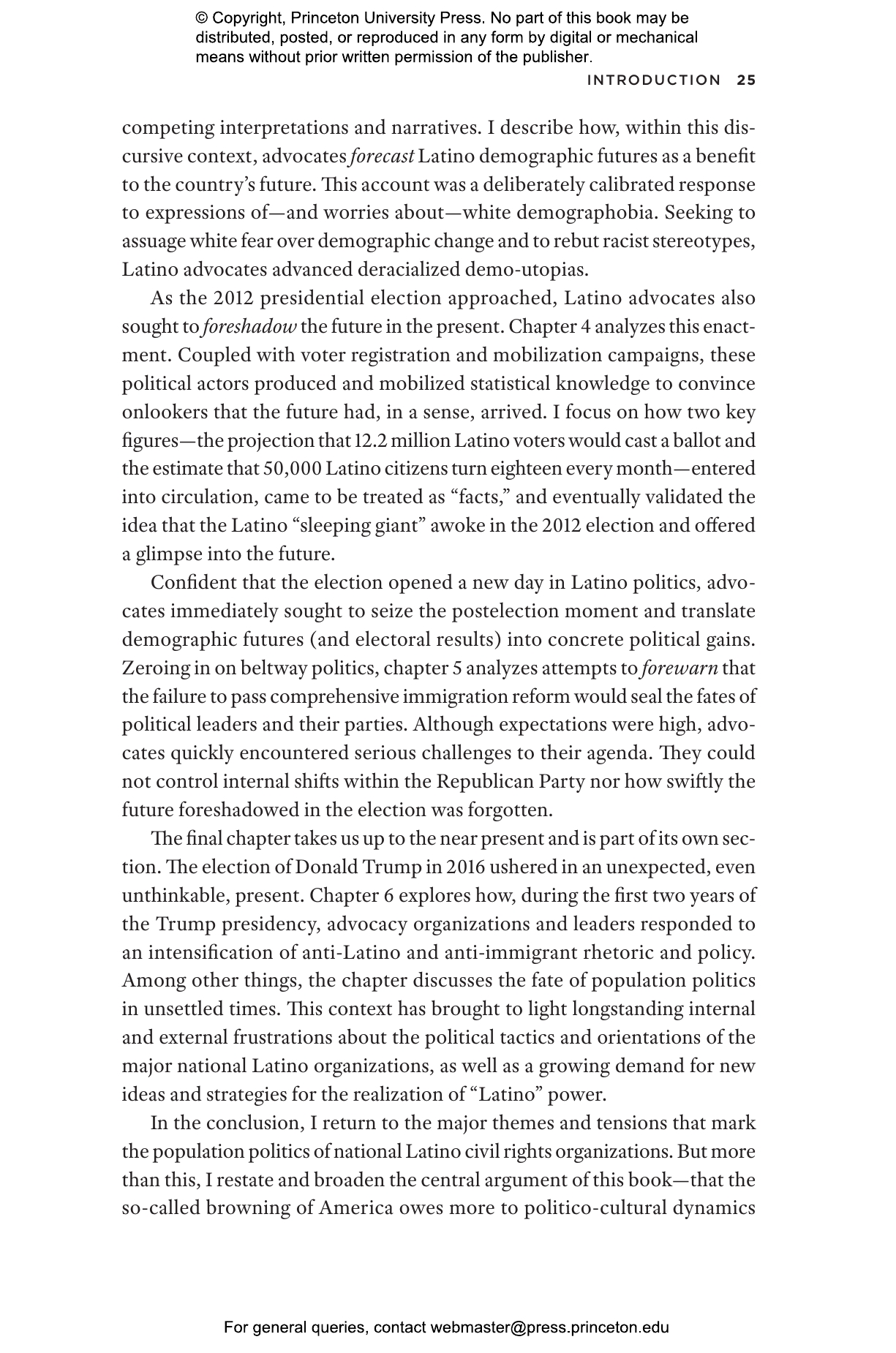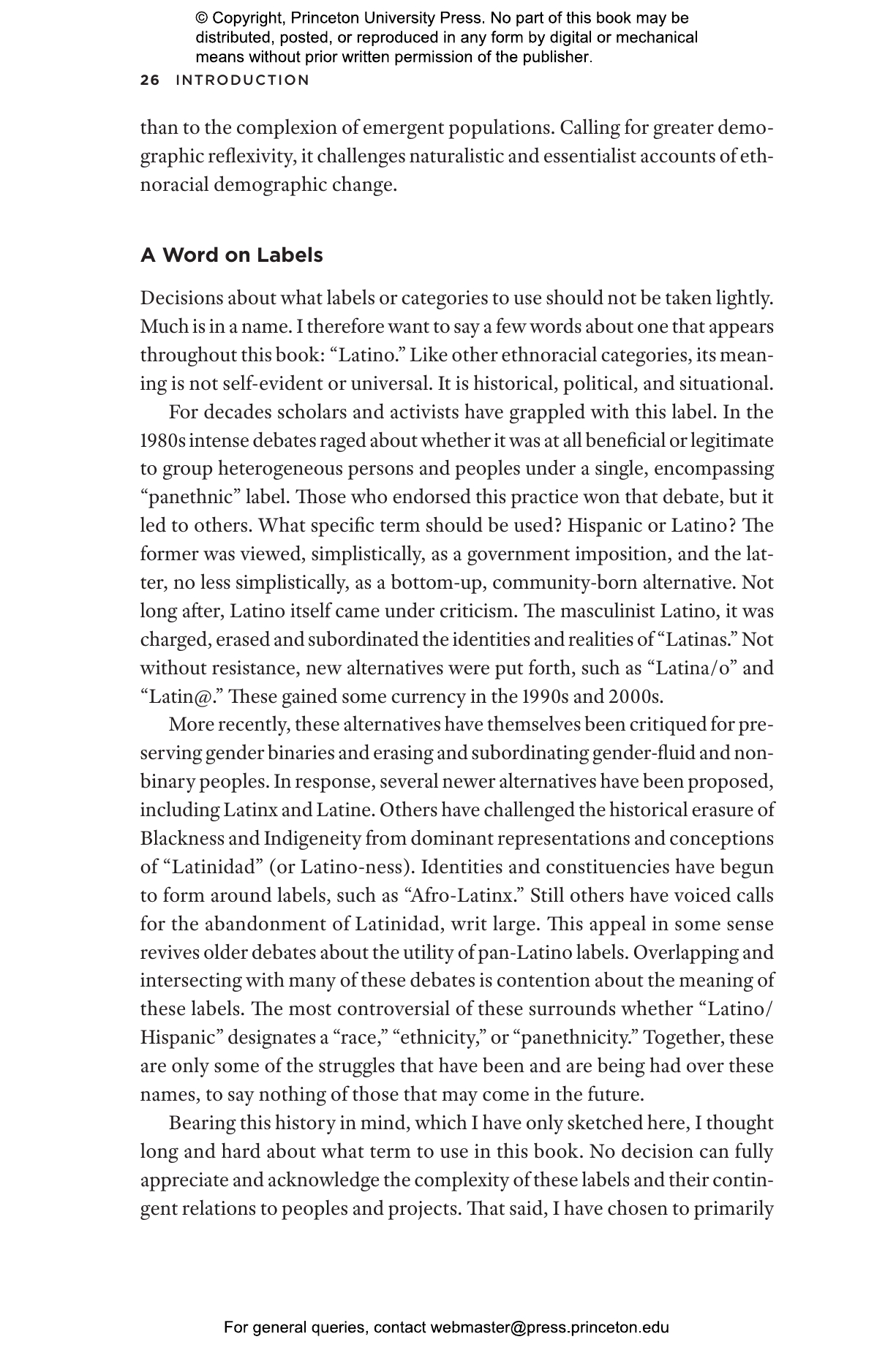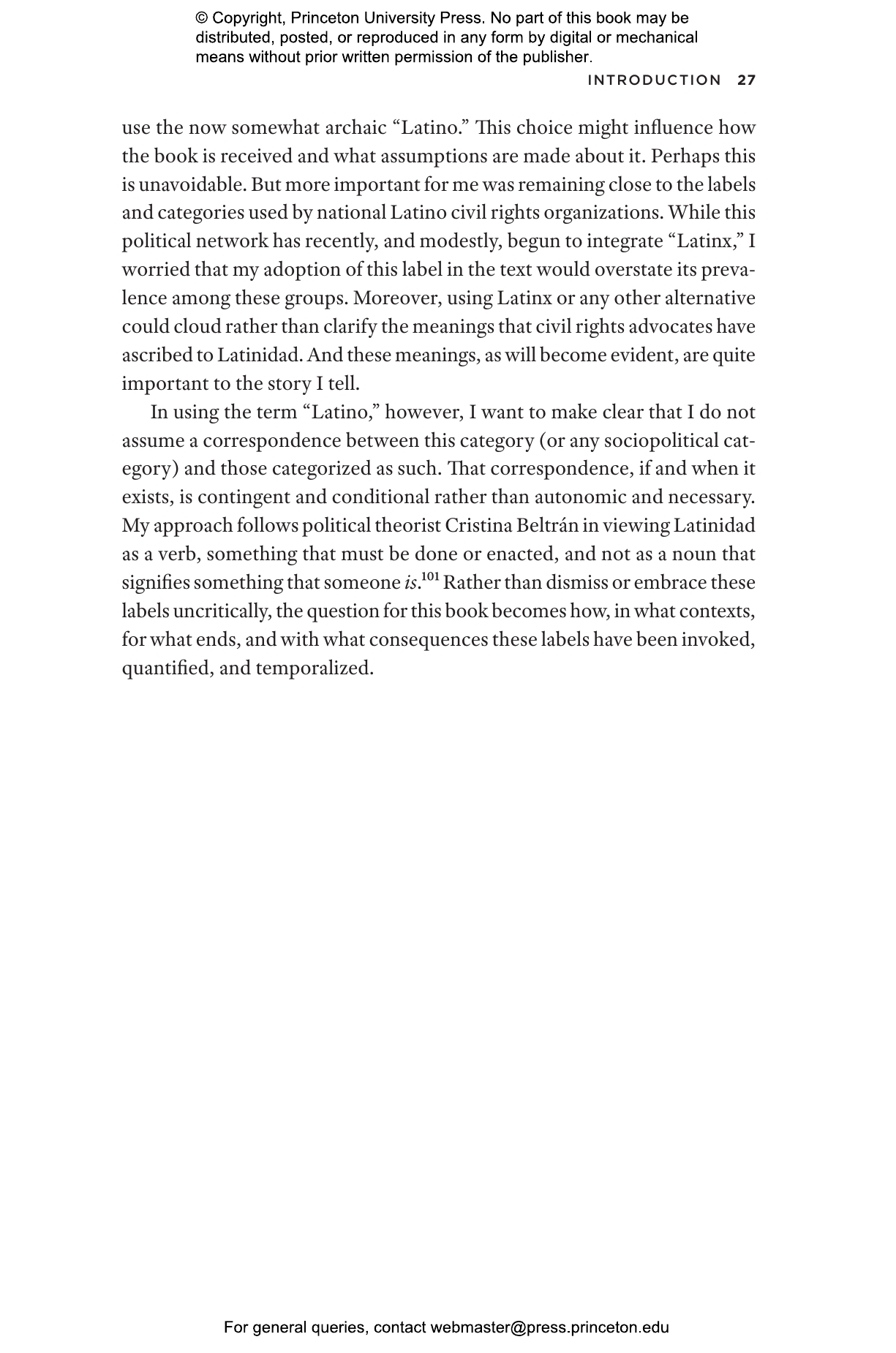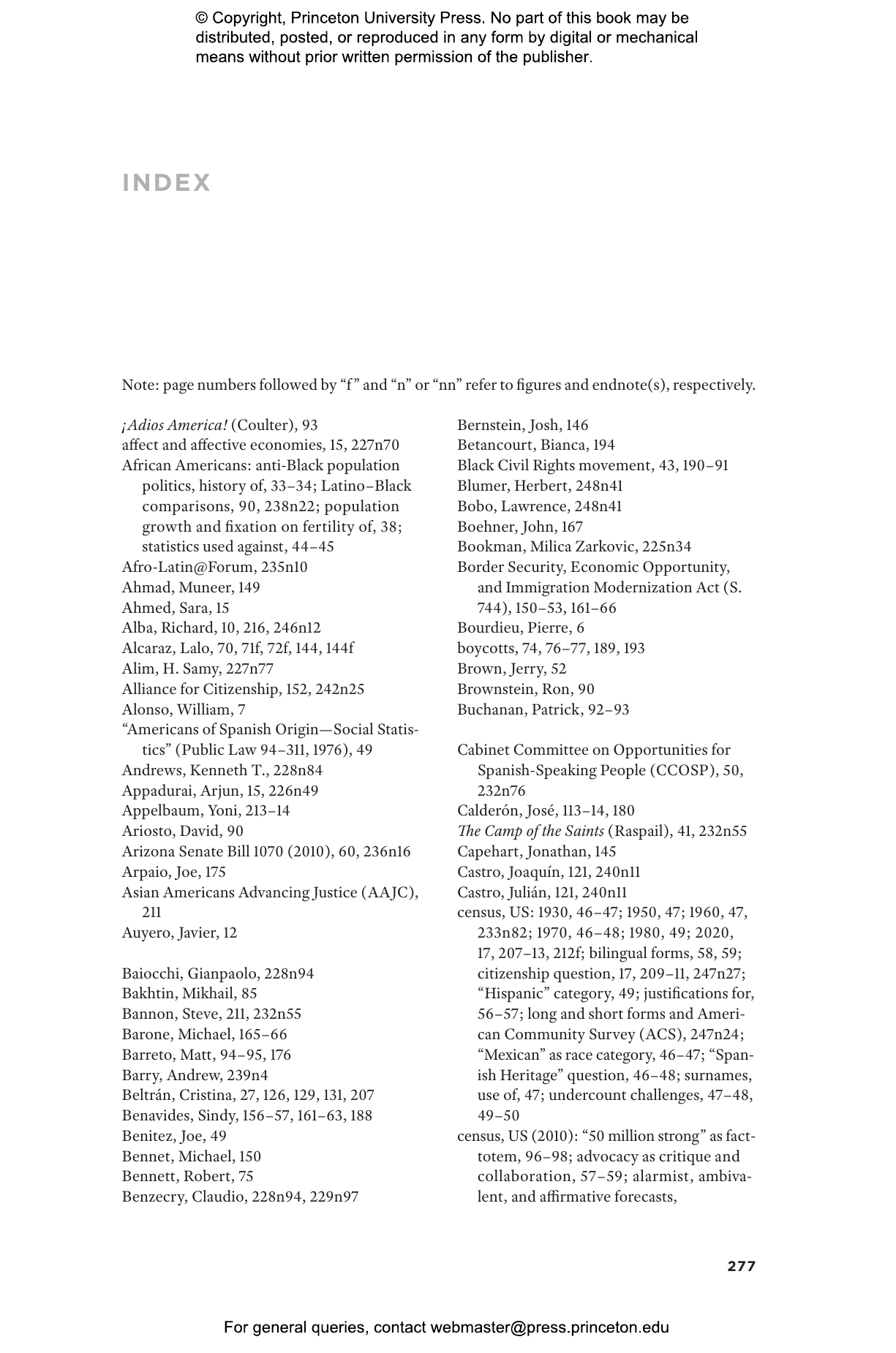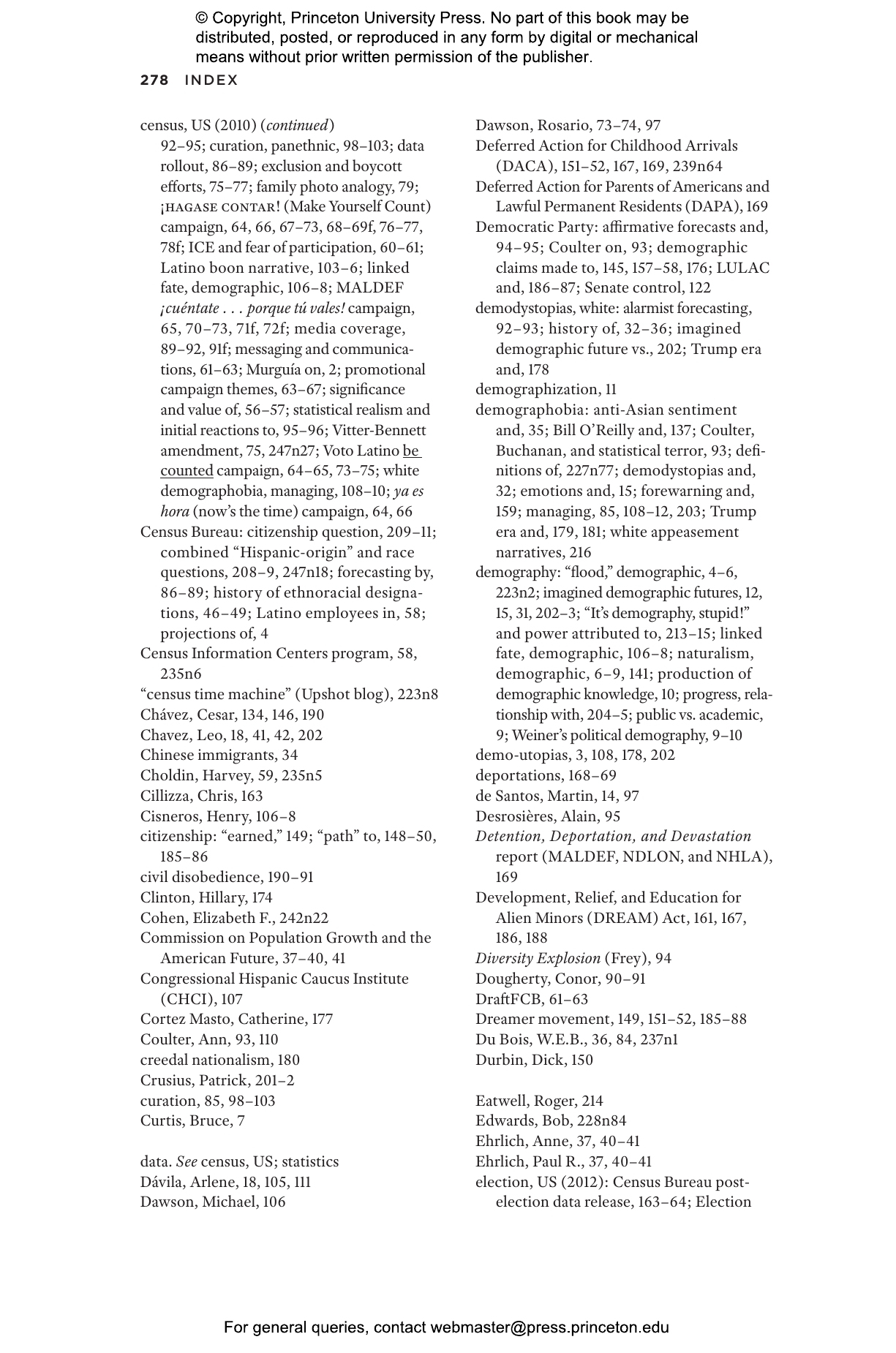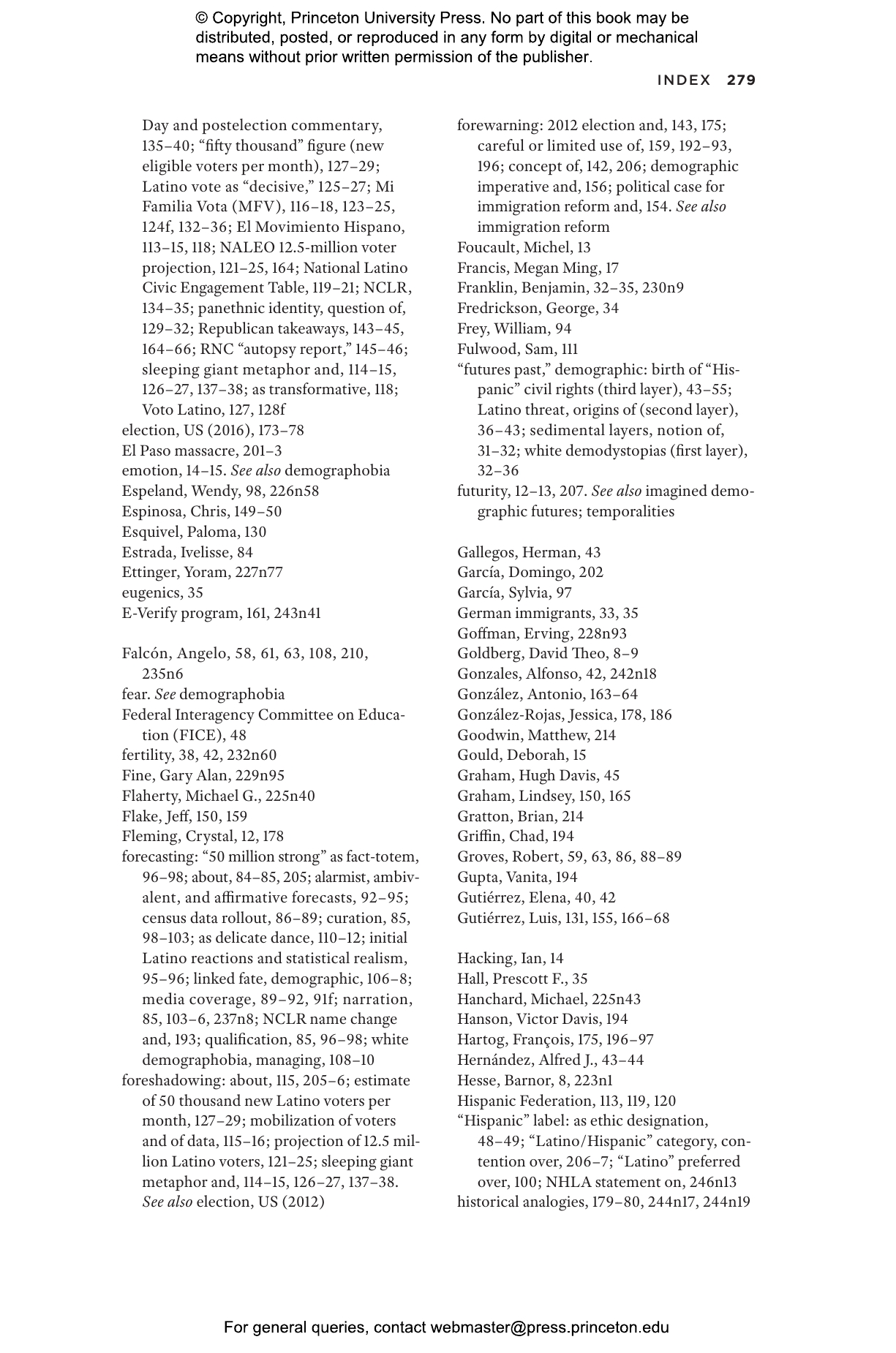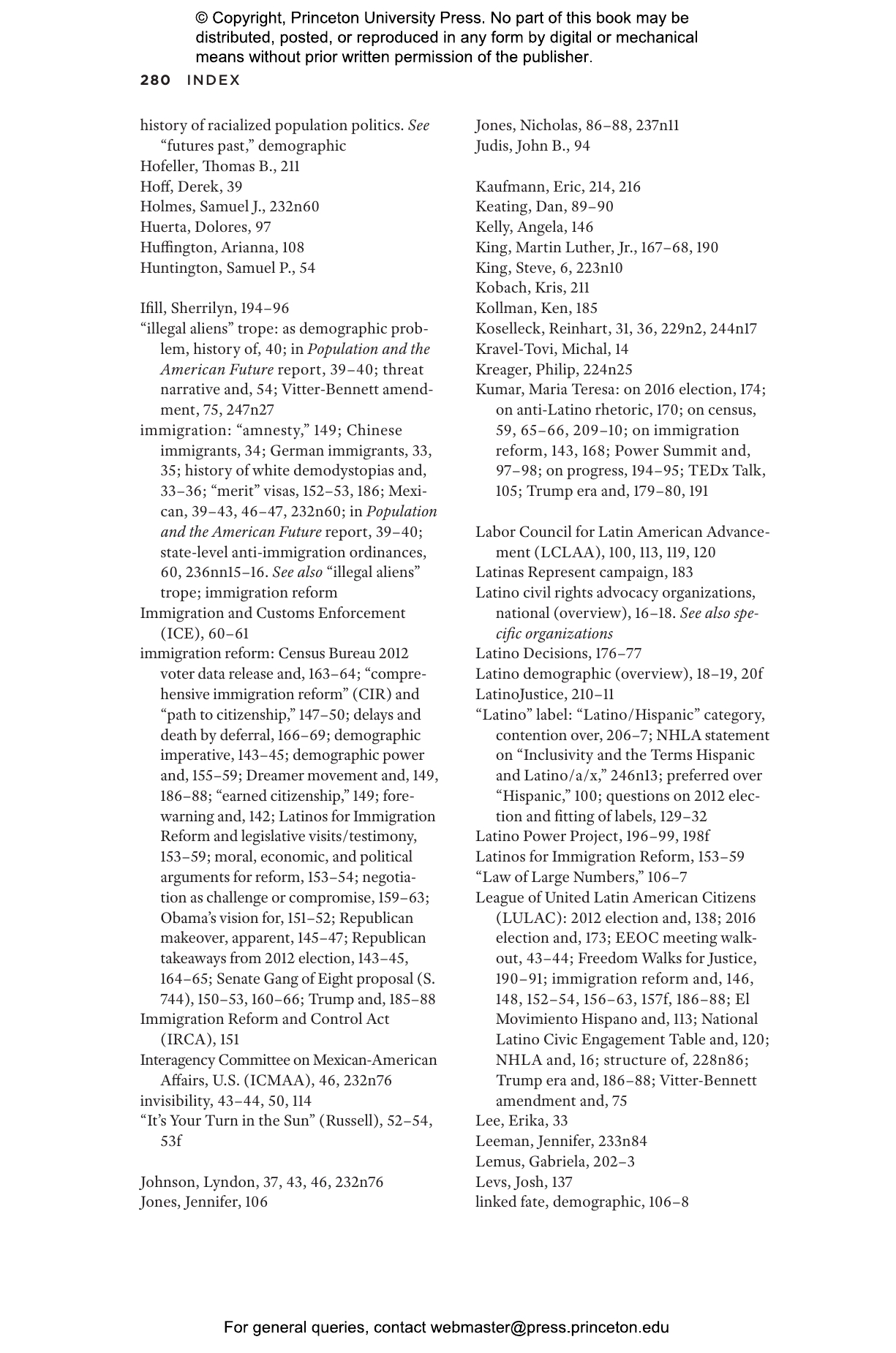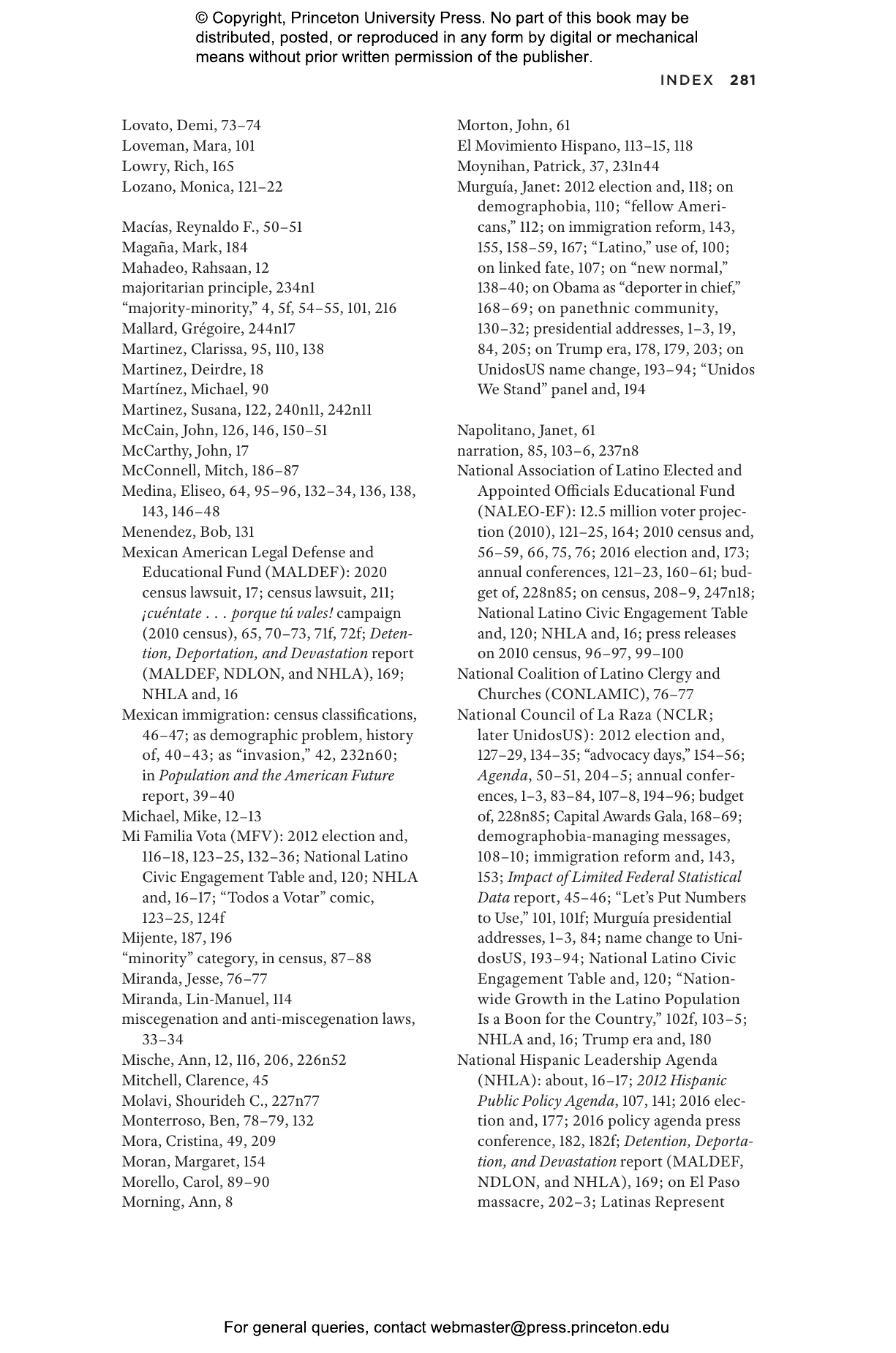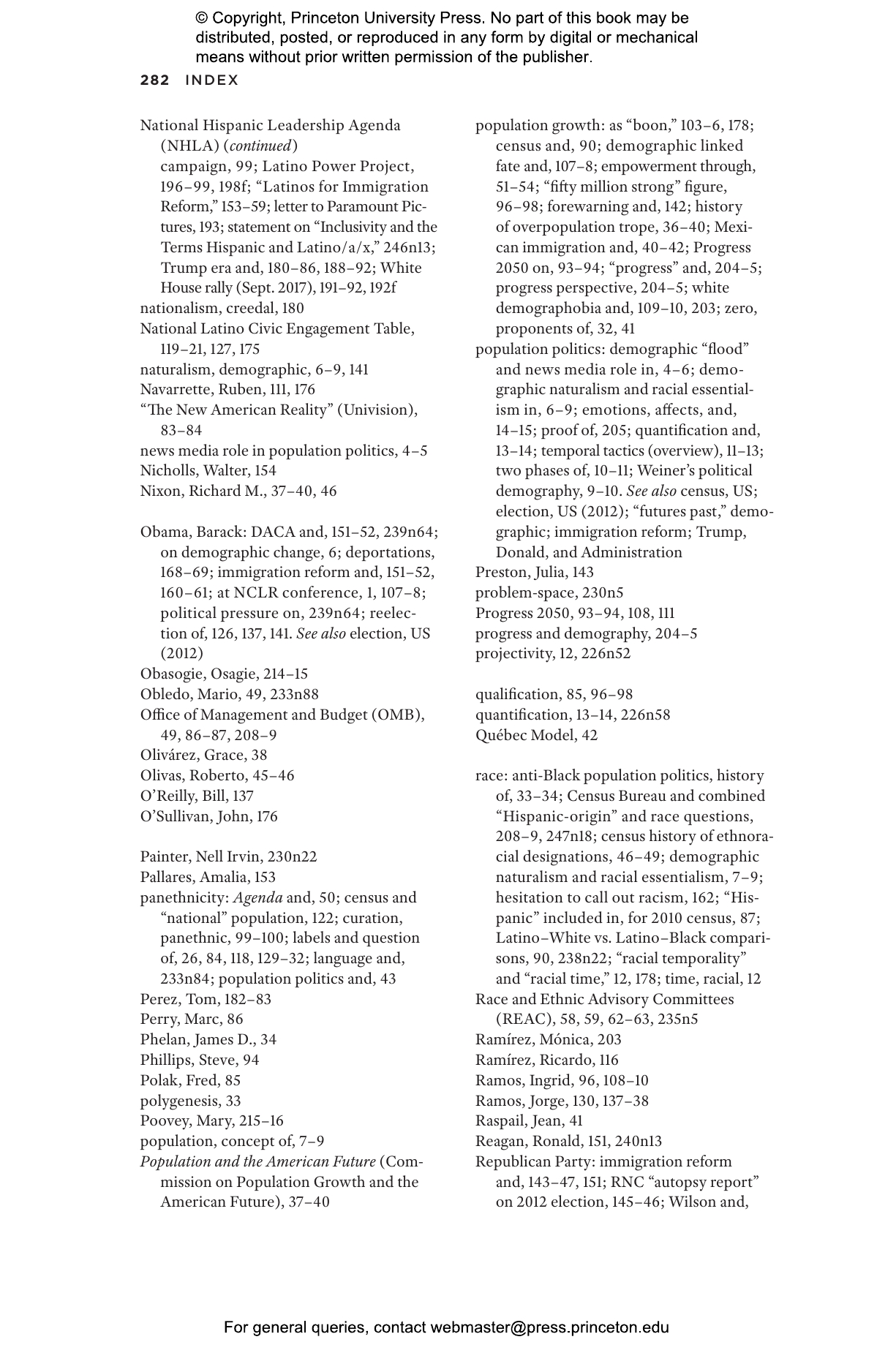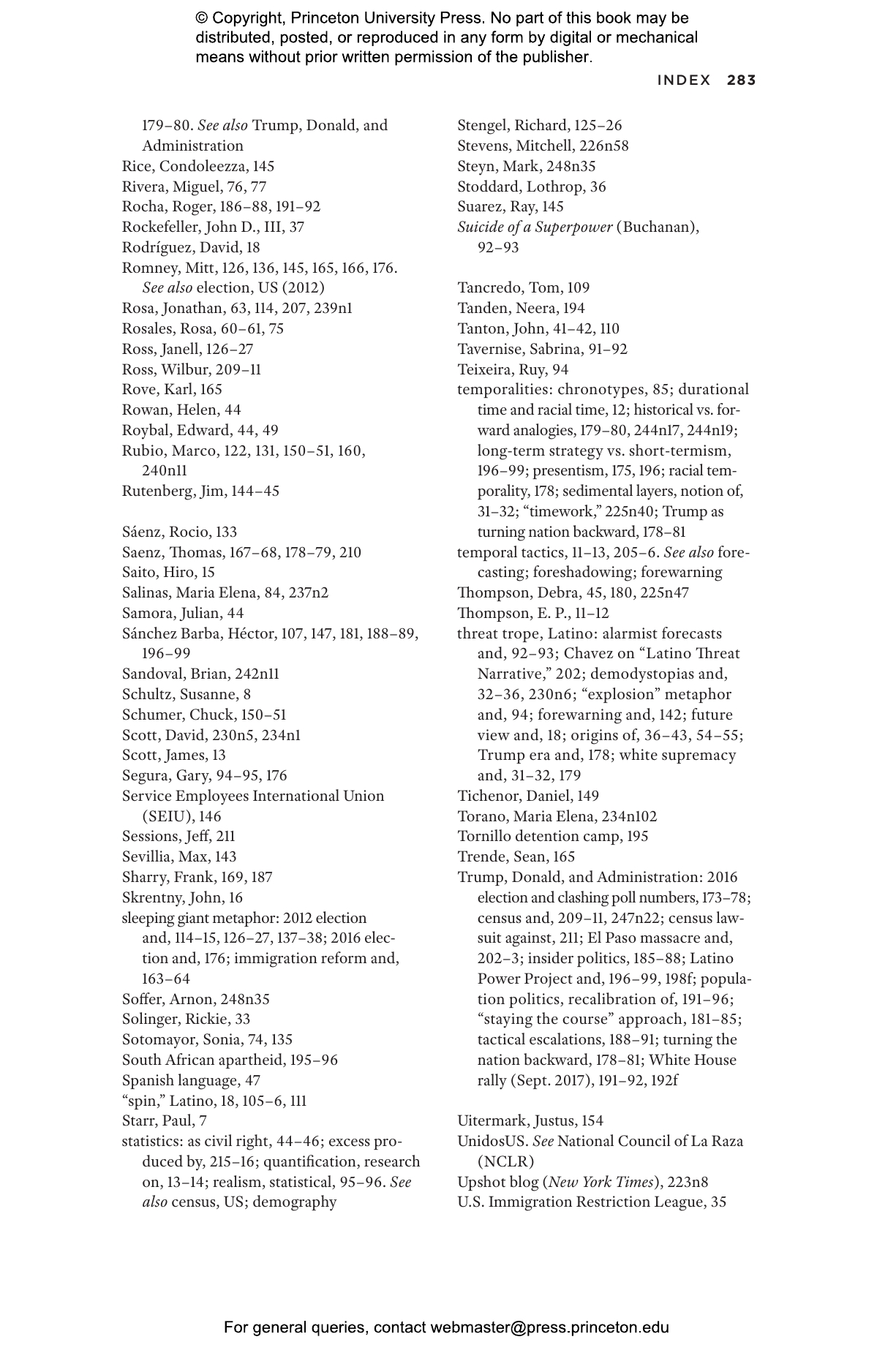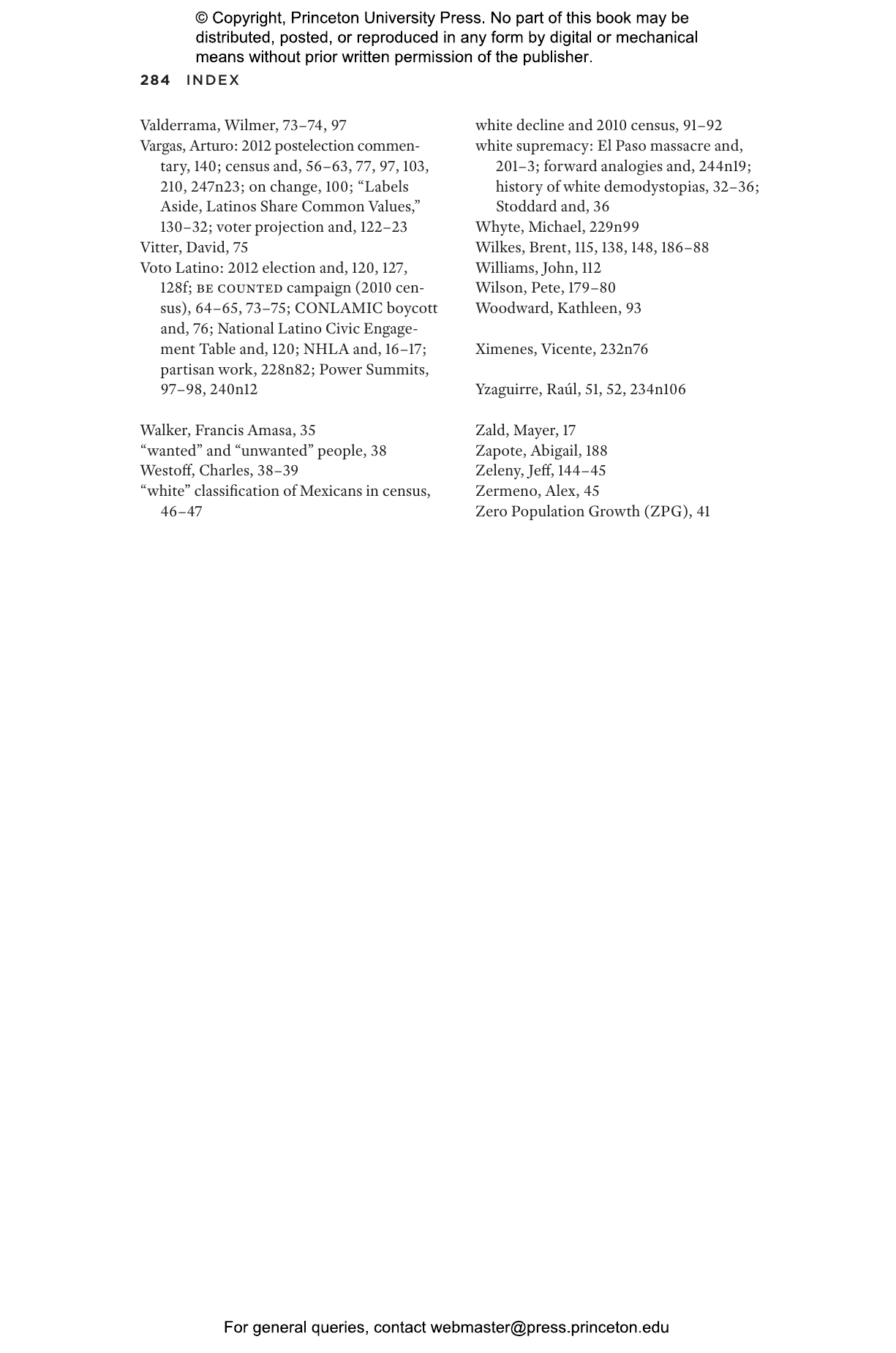For years, newspaper headlines, partisan speeches, academic research, and even comedy routines have communicated that the United States is undergoing a profound demographic transformation—one that will purportedly change the “face” of the country in a matter of decades. But the so-called browning of America, sociologist Michael Rodríguez-Muñiz contends, has less to do with the complexion of growing populations than with past and present struggles shaping how demographic trends are popularly imagined and experienced. Offering an original and timely window into these struggles, Figures of the Future explores the population politics of national Latino civil rights groups.
Based on eight years of ethnographic and qualitative research, spanning both the Obama and Trump administrations, this book investigates how several of the most prominent of these organizations—including UnidosUS (formerly NCLR), the League of United Latin American Citizens, and Voto Latino—have mobilized demographic data about the Latino population in dogged pursuit of political recognition and influence. In census promotions, get-out-the-vote campaigns, and policy advocacy, this knowledge has been infused with meaning, variously serving as future-oriented sources of inspiration, emblems for identification, and weapons for contestation. At the same time, Rodríguez-Muñiz considers why these political actors have struggled to translate this demographic growth into tangible political gain and how concerns about white backlash have affected how they forecast demographic futures.
Figures of the Future looks closely at the politics surrounding ethnoracial demographic changes and their rising influence in U.S. public debate and discourse.
Awards and Recognition
- Winner of the Otis Dudley Duncan Book Award, Population Section of the American Sociological Association
- Winner of the Mary Douglas Prize, Culture Section of the American Sociological Association
- Winner of the Best Book Award, Latino/a Section of the American Sociological Association
- Honorable Mention for the Charles Tilly Distinguished Book Award, Collective Behavior and Social Movements Section of the American Sociological Association
"Incredibly original and innovative. . . . [Figures of the Future] is an outstanding contribution to the field."—Julie A. Dowling, Social Forces
"[Rodríguez-Muñiz] takes readers to the frontline of Latino advocacy and vividly describes how activists use demographic figures for political persuasion. . . . As the lofty optimism of a supposedly post-racial future was shattered by a dystopian embrace of white supremacy, many of us are still dizzy from this ride. Against this backdrop, Rodríguez-Muñiz provides us with critical tools to evaluate where we stand and where we go from here."—Sunmin Kim, Sociology of Race and Ethnicity
"Rodríguez-Muñiz crafts a conscientious, sociologically informed narrative that is approachable yet critical, and that engages while challenging the reader."—Sociological Viewpoints
"Engaging and sophisticated, Figures of the Future will make readers rethink one of the most momentous beliefs of our political era: that demography is destiny. Focusing on widely diffuse claims about the U.S. Latinx population as an electoral force, Michael Rodríguez-Muñiz brilliantly shows how time is an essential if overlooked element in these depictions. This book’s relevance to the American social and political landscape will be long-lasting."—Ann Morning, author of The Nature of Race
"In Figures of the Future, Michael Rodríguez-Muñiz masterfully cautions that demography is not necessarily destiny but depends on politics and power. He describes how both Latino narratives of emergent power and, frustratingly, Latino threat narratives, are based on beliefs regarding population growth. This book is a must-read for anyone interested in demography, immigration, and American politics."—Edward Telles, author of Pigmentocracies
"Combining theory and history with a rich ethnography of Latino civil rights organizations, Michael Rodríguez-Muñiz pulls back the curtain on the politics of interpreting demographic data to imagine the place of Latinos in America’s future. Showing how people become racialized or ethnicized, Figures of the Future offers keen and accessible insights into how politics frame the public’s understanding of demographics and population projections."—Leo R. Chavez, author of The Latino Threat
"The primary work on contemporary Latino civil rights advocacy organizations, Figures of the Future shows exactly how Latino activists mobilize to shape the census, voter registration, and get-out-the-vote campaigns. With its impressive analytical and empirical scope, this must-read book promises to enrich the areas of racial politics, Latino studies, immigration, demographic change, civil rights, nonprofit organizations, political participation, and policymaking."—Chris Zepeda-Millán, author of Latino Mass Mobilization
"Figures of the Future makes three major contributions: it centralizes and offers a fascinating look at the role of time in U.S. political projects, provides critical insights into the structure of U.S. racial politics, and charts new directions in the field of Latinx politics. Clear and accessible, creative and rigorous, this groundbreaking book could not be more timely."—G. Cristina Mora, author of Making Hispanics
